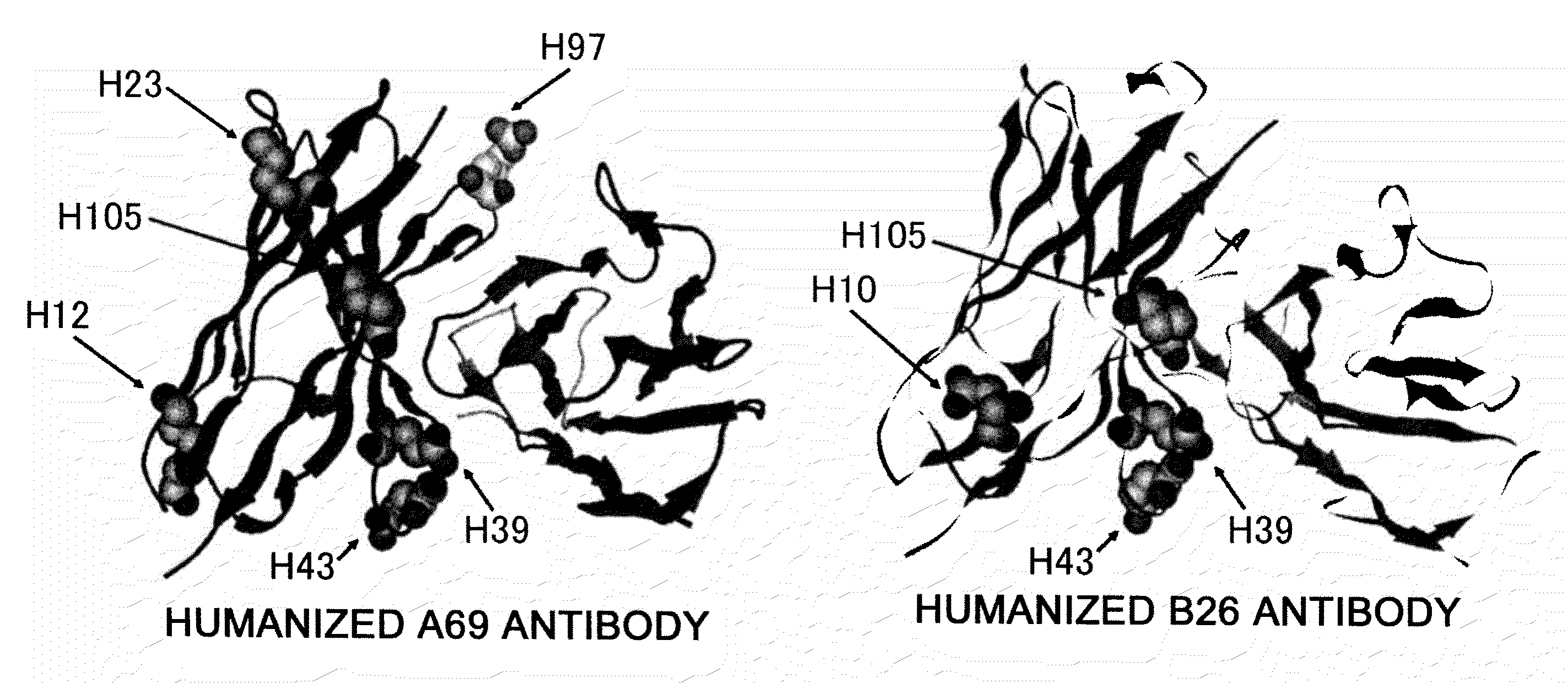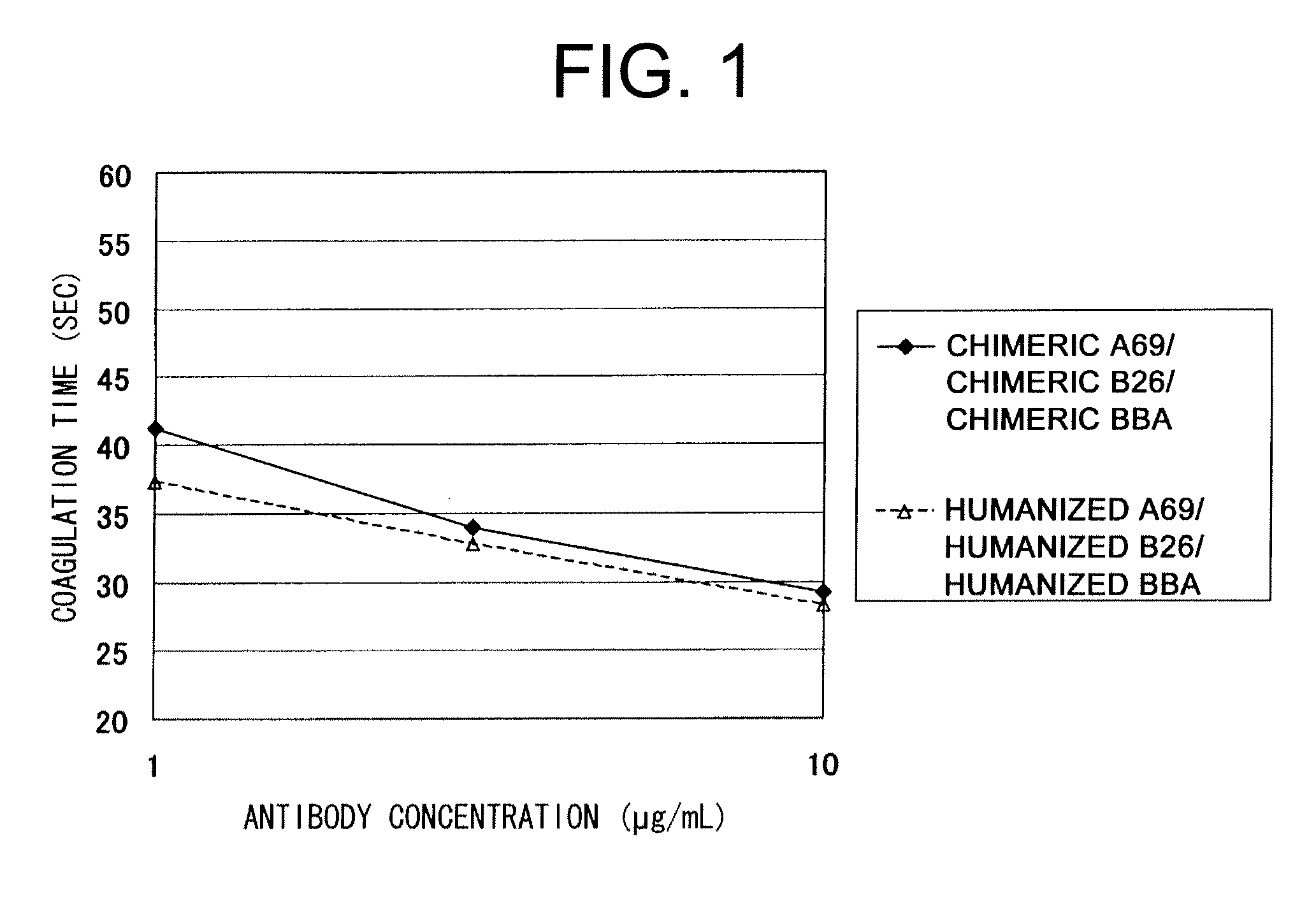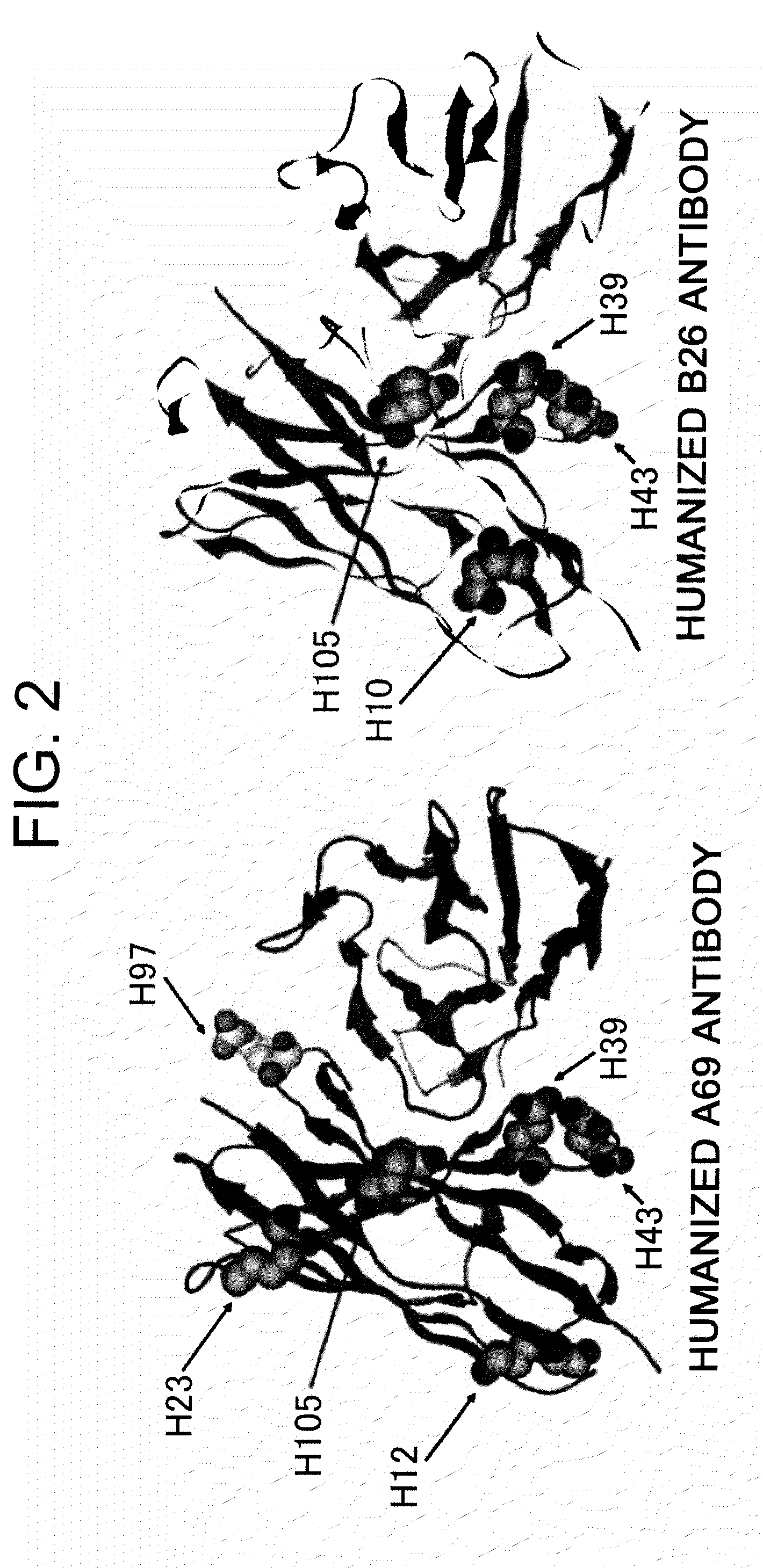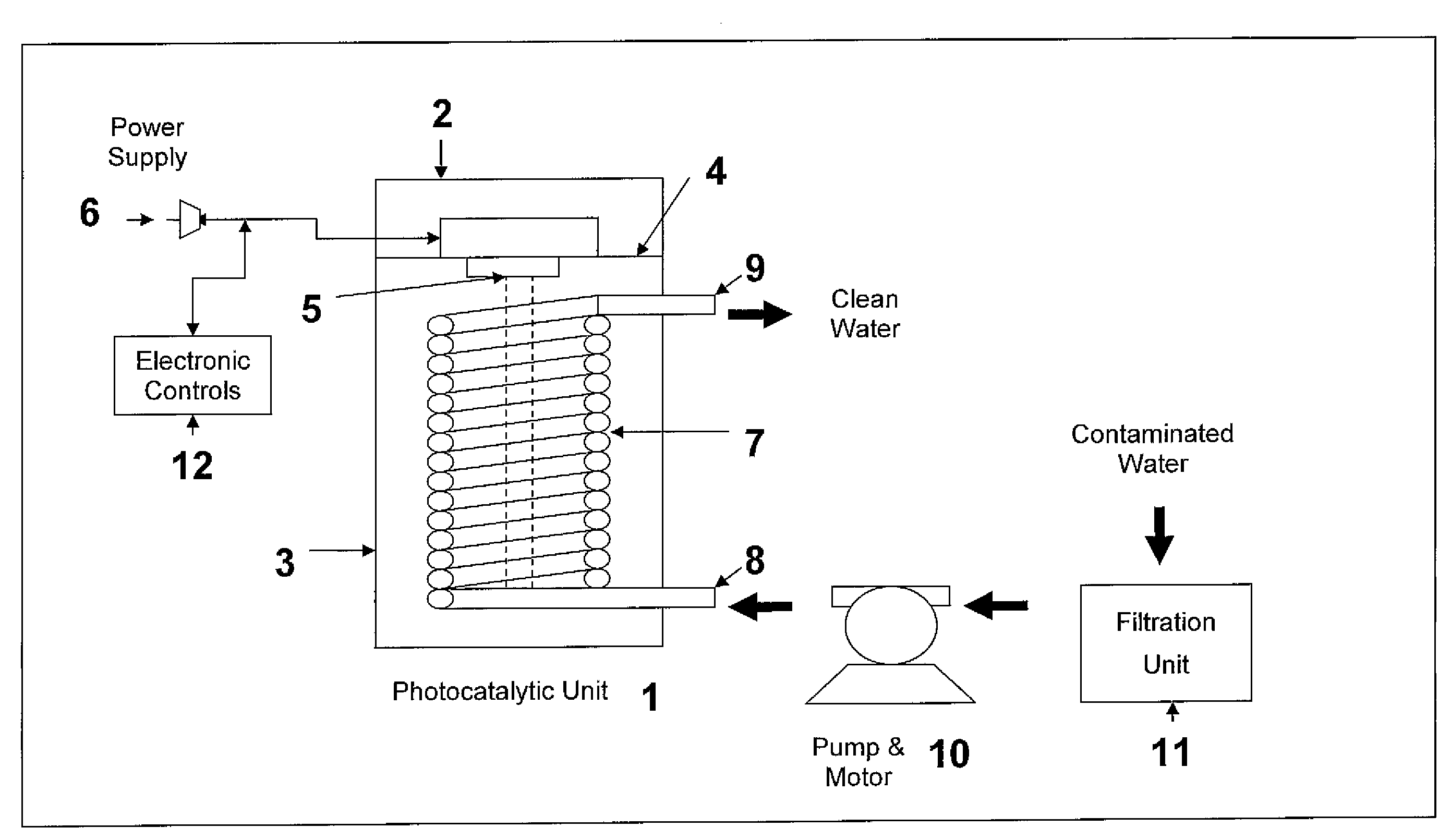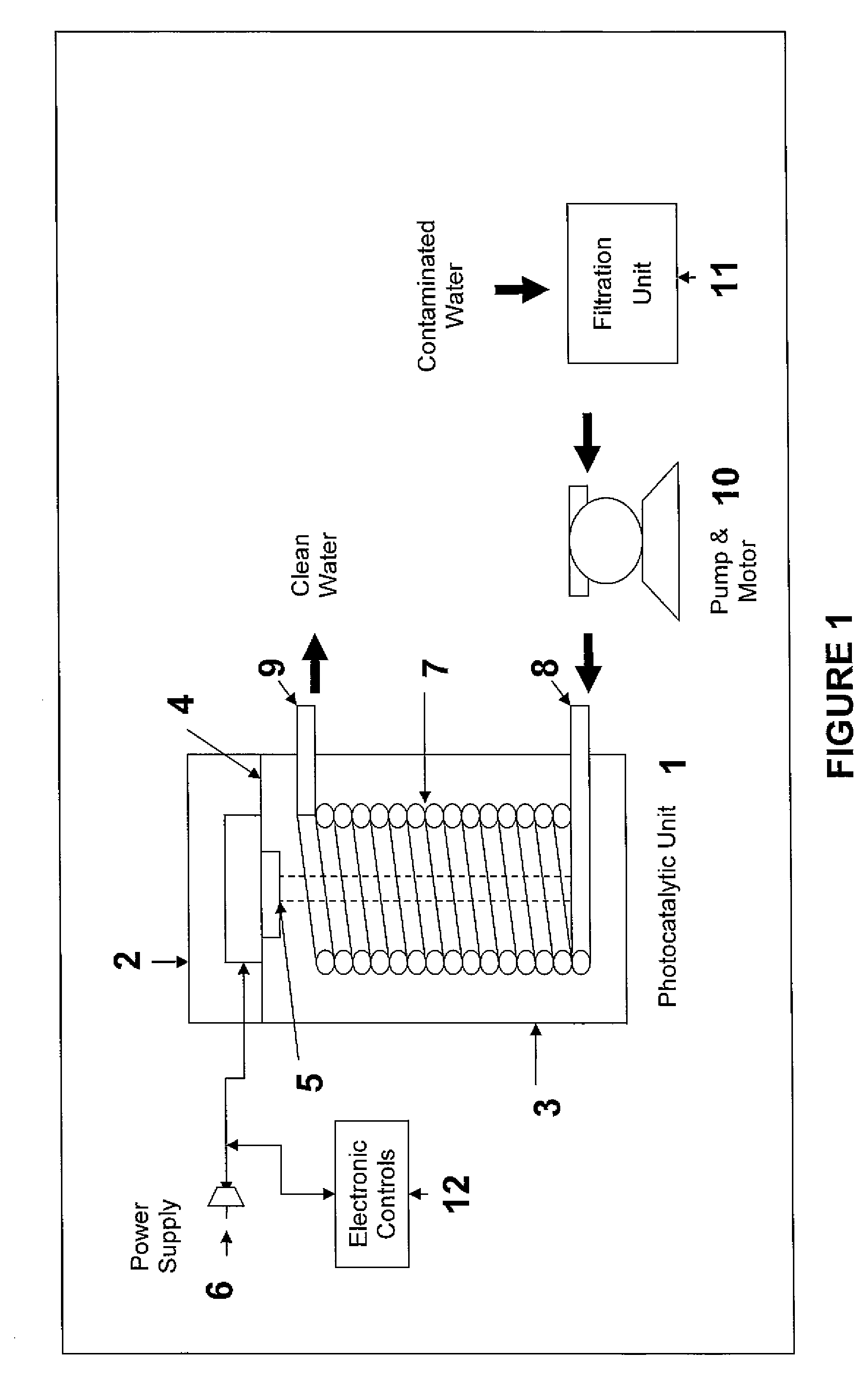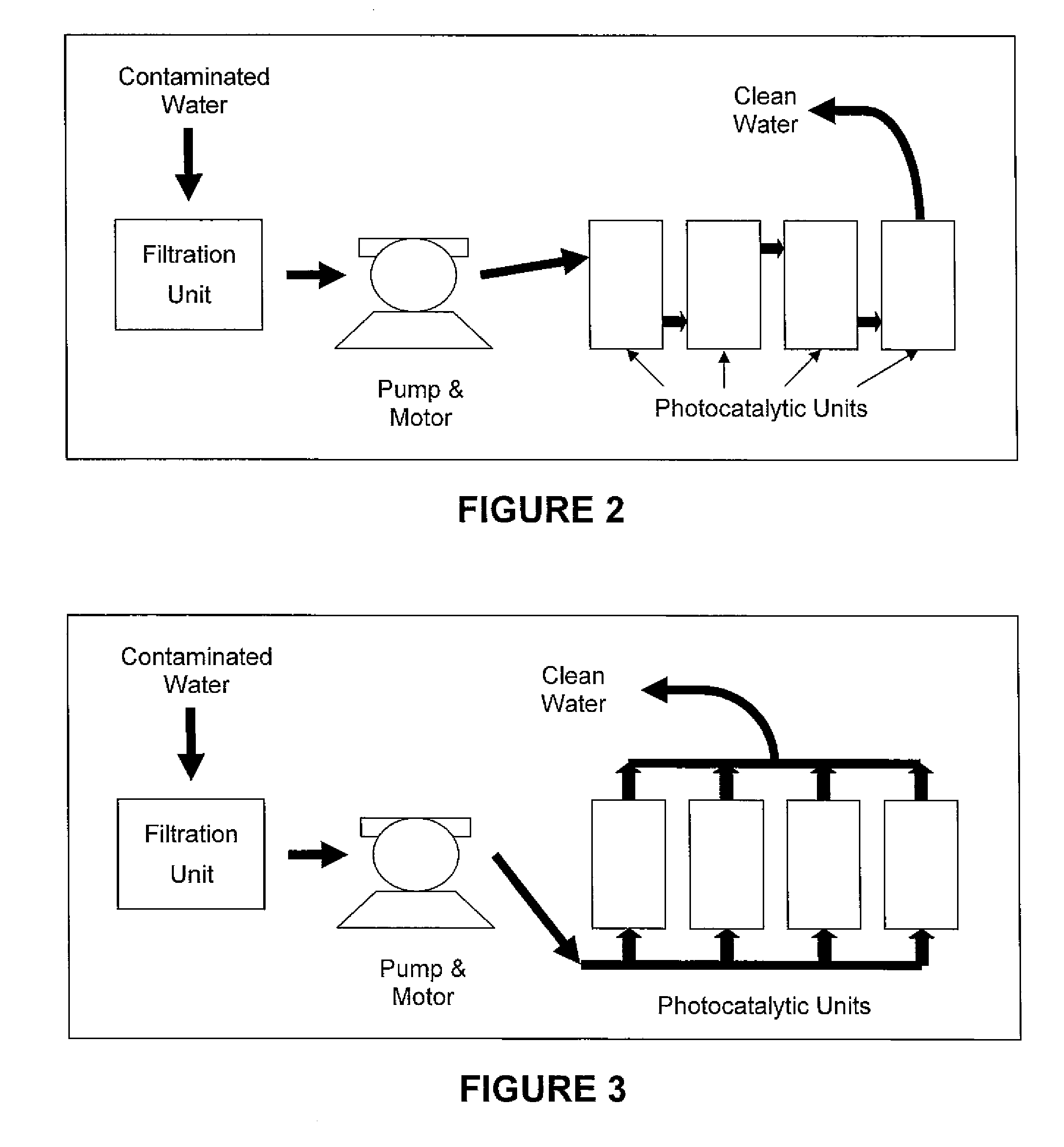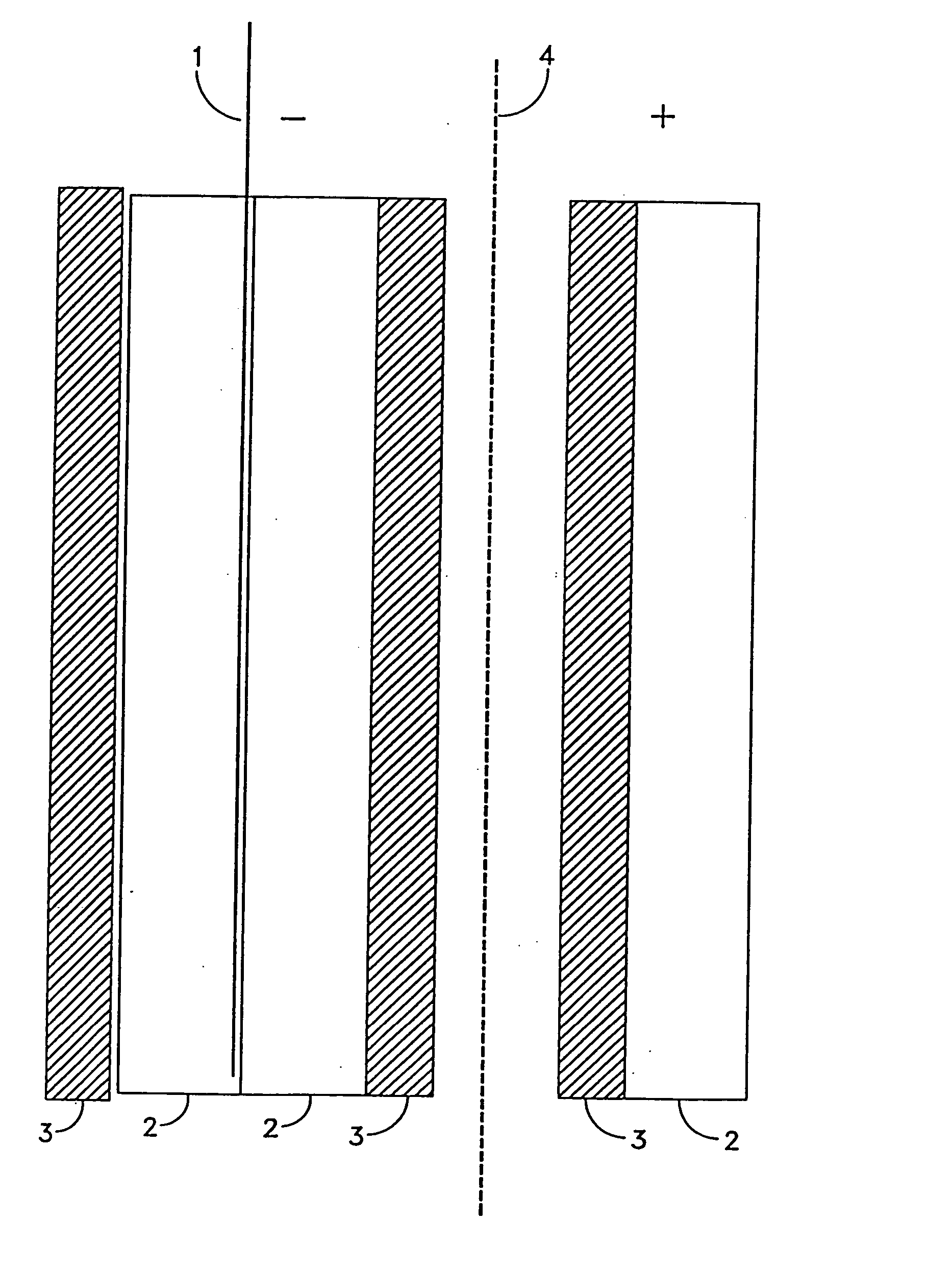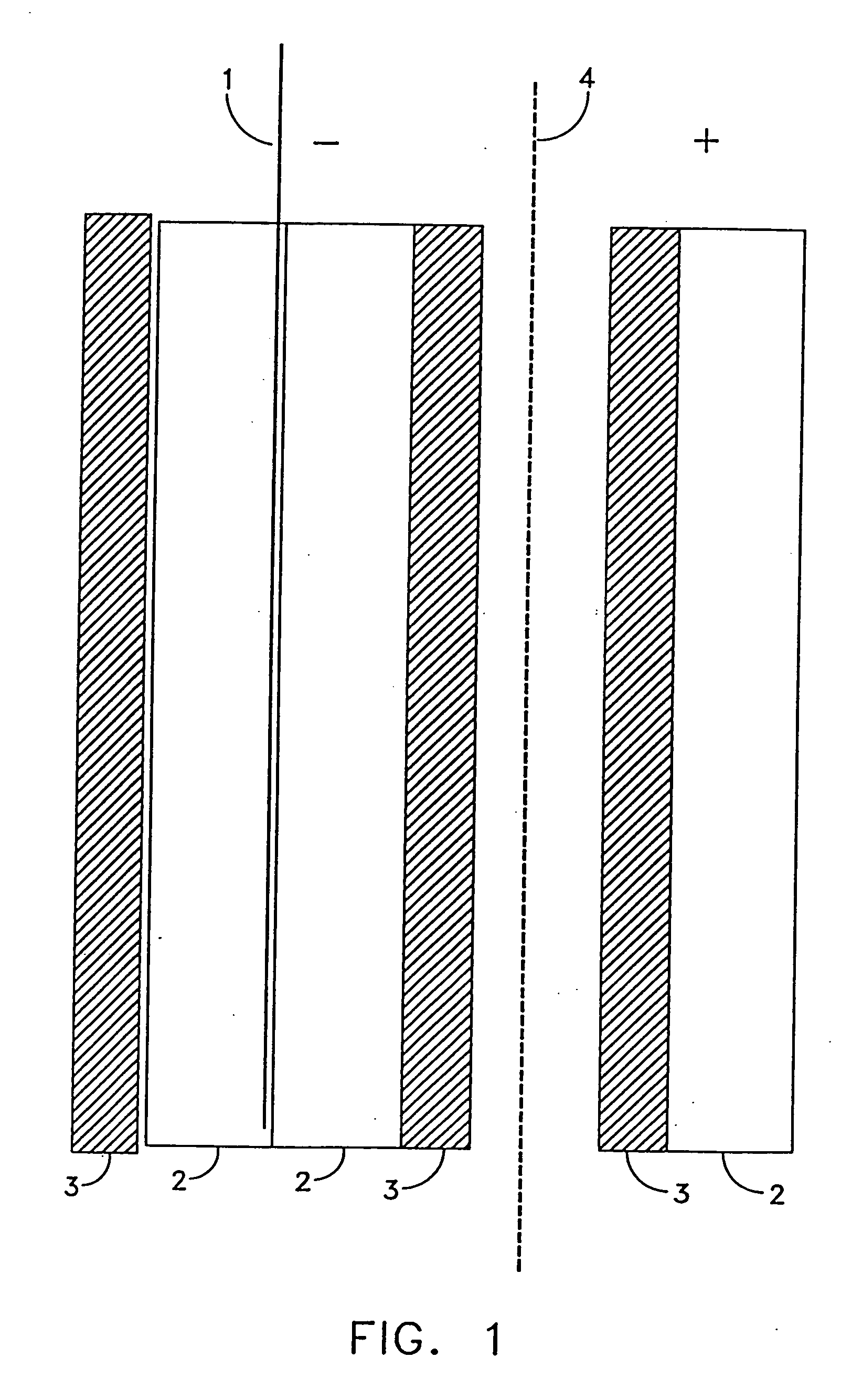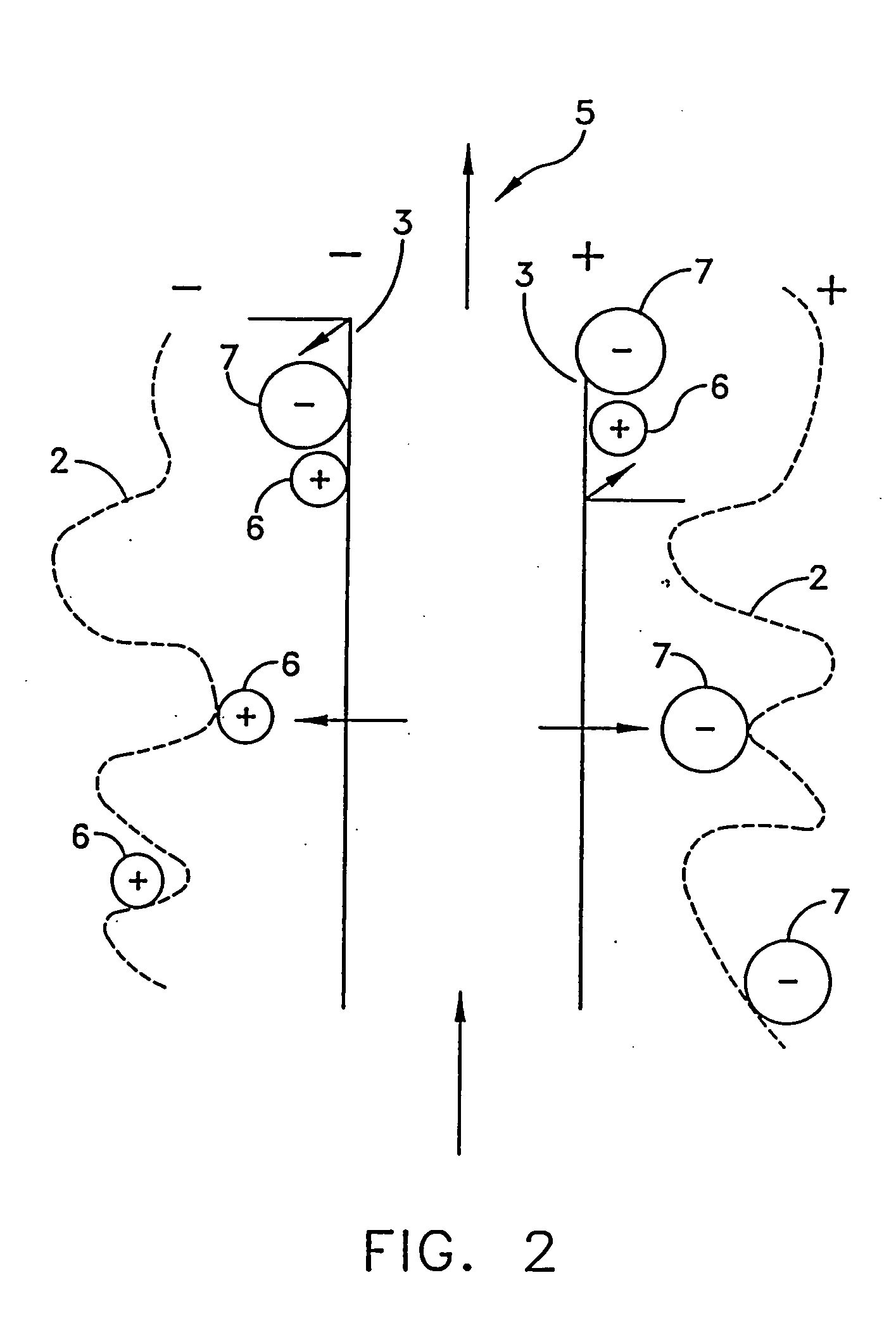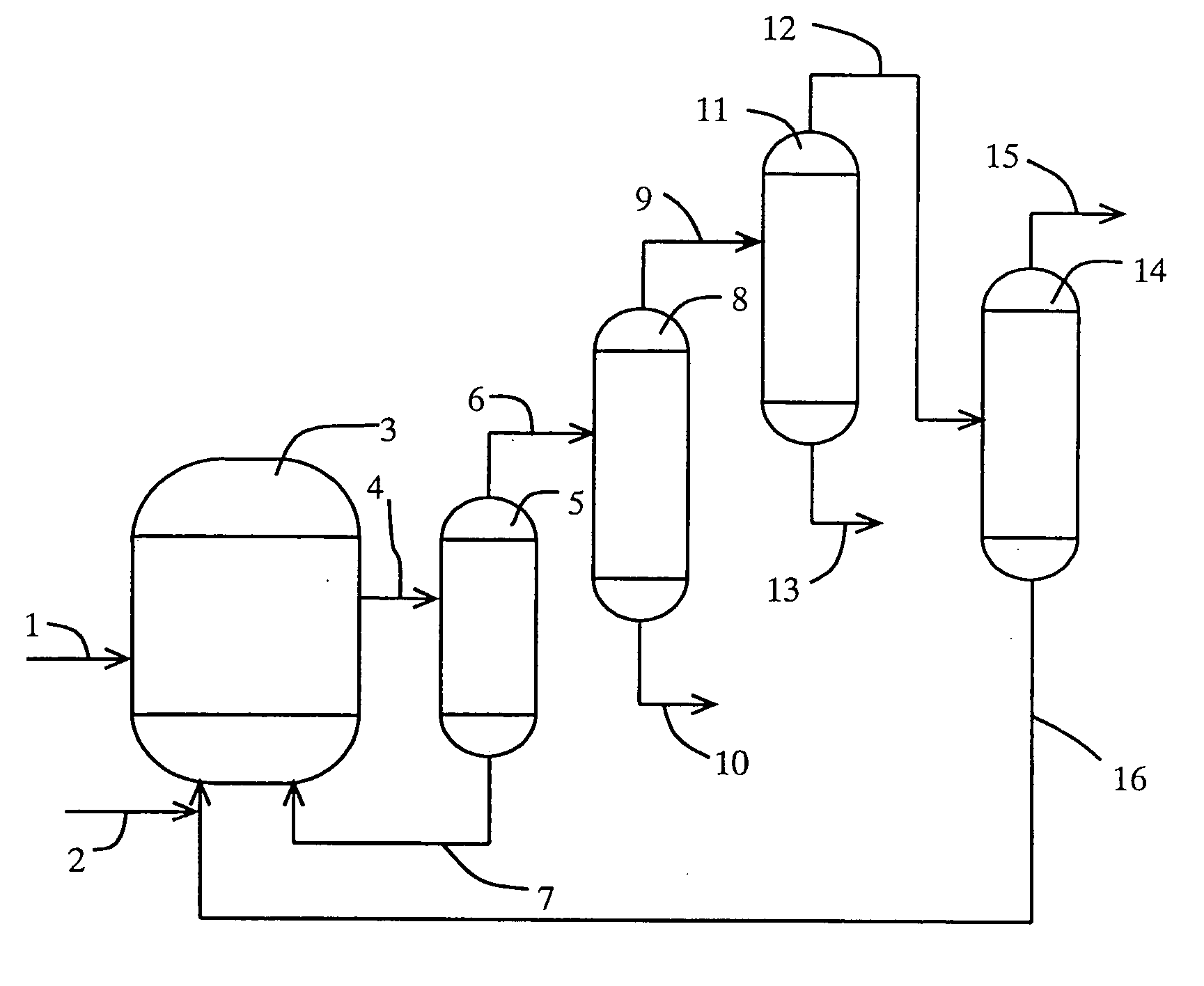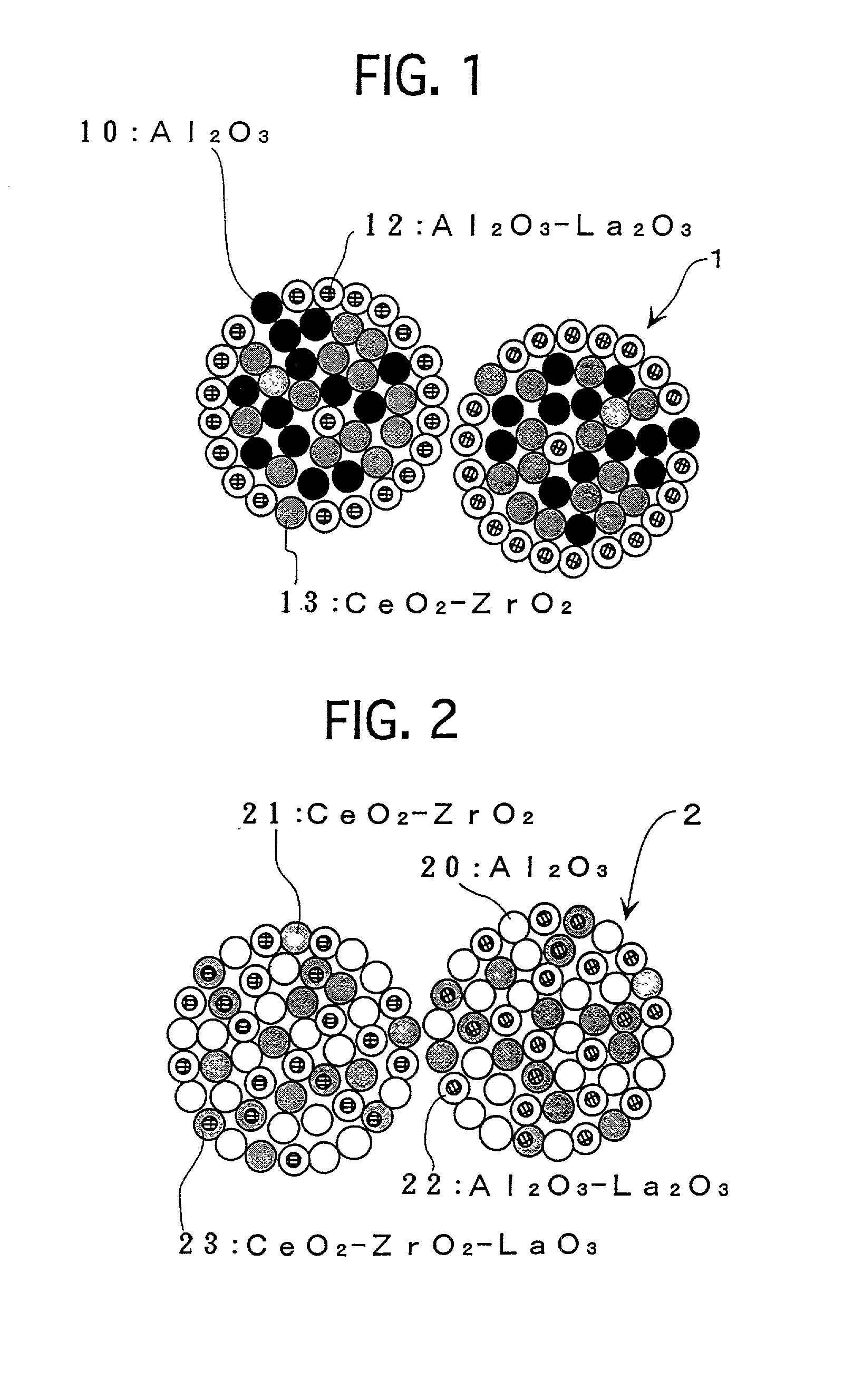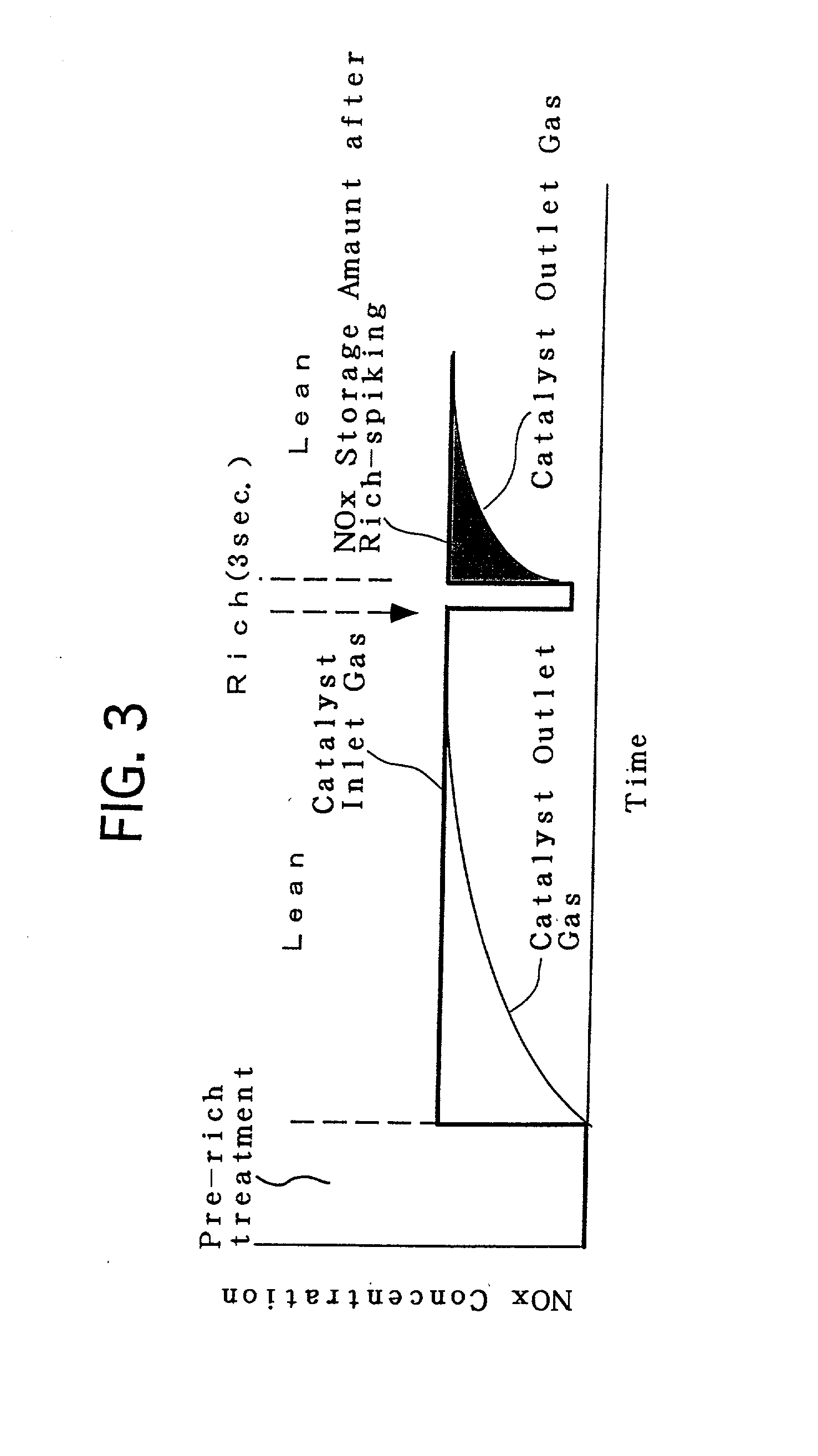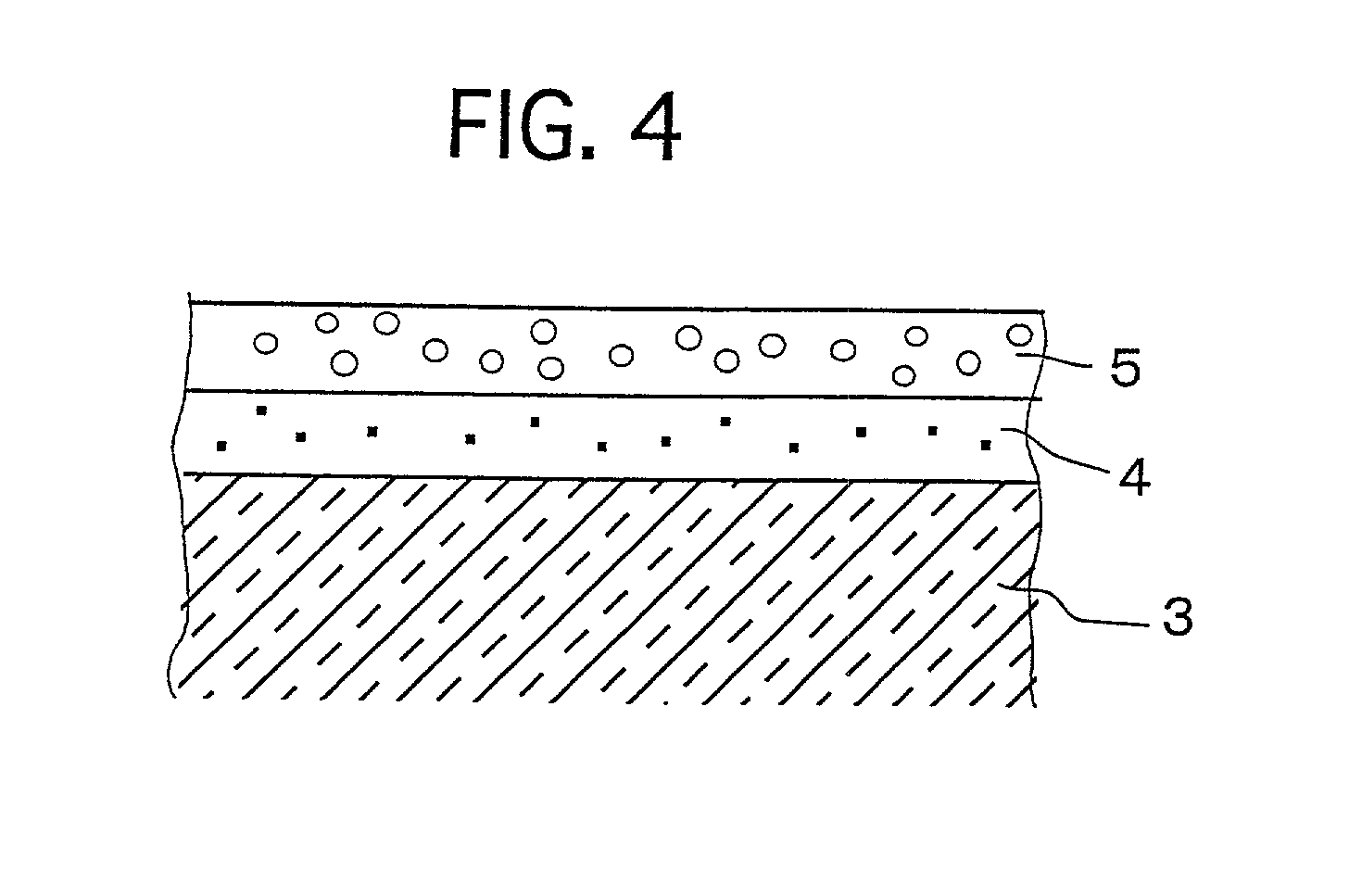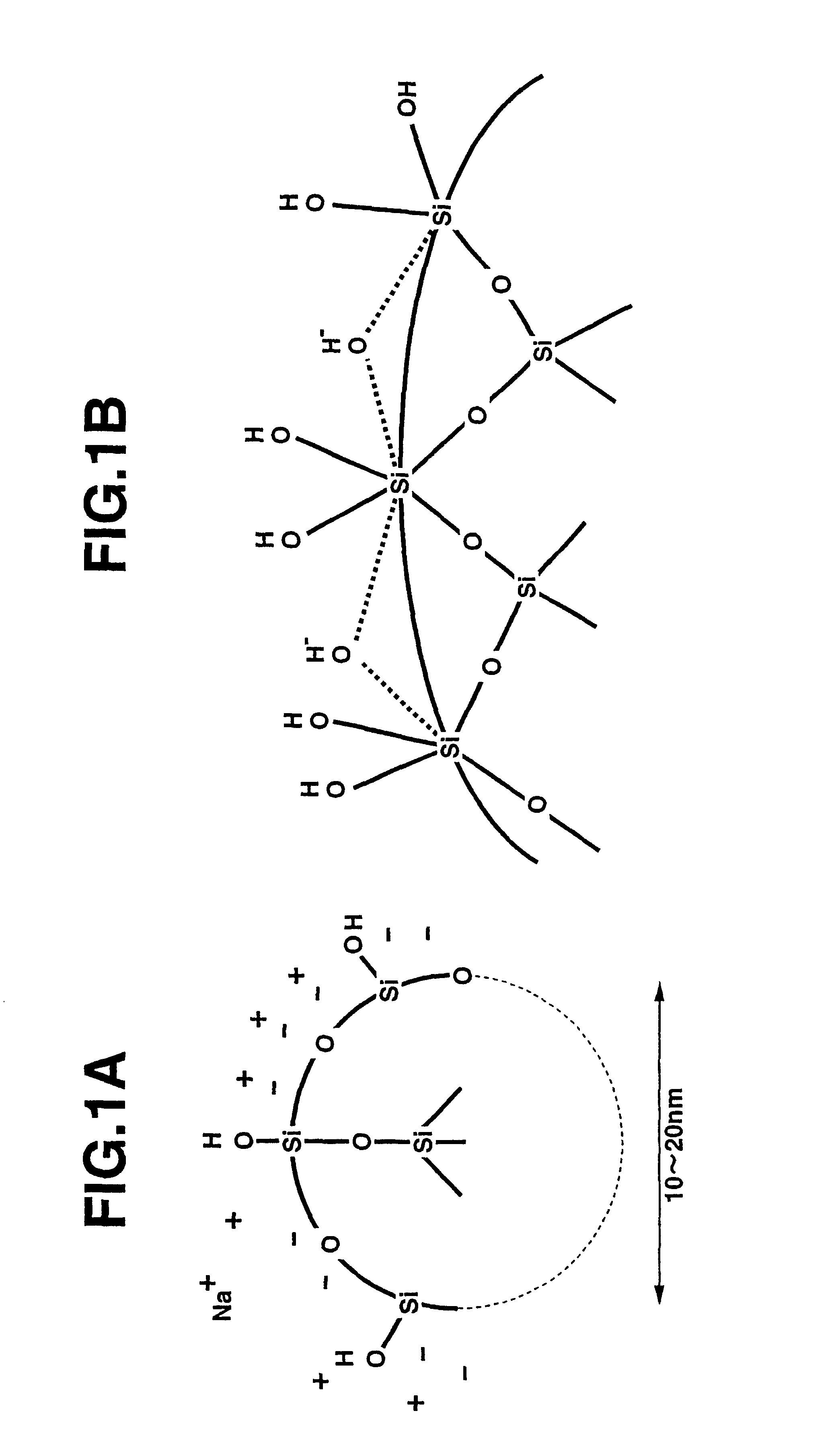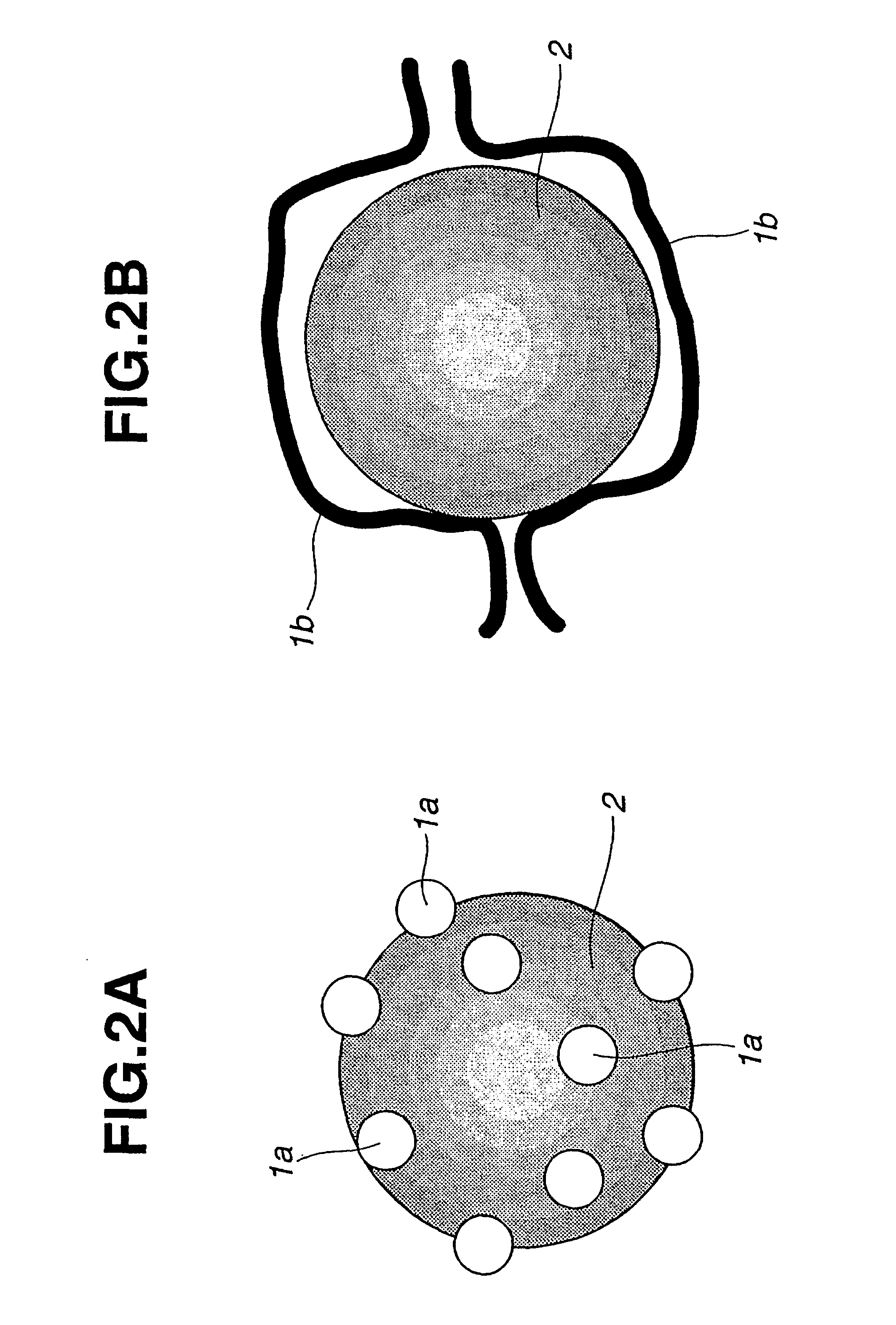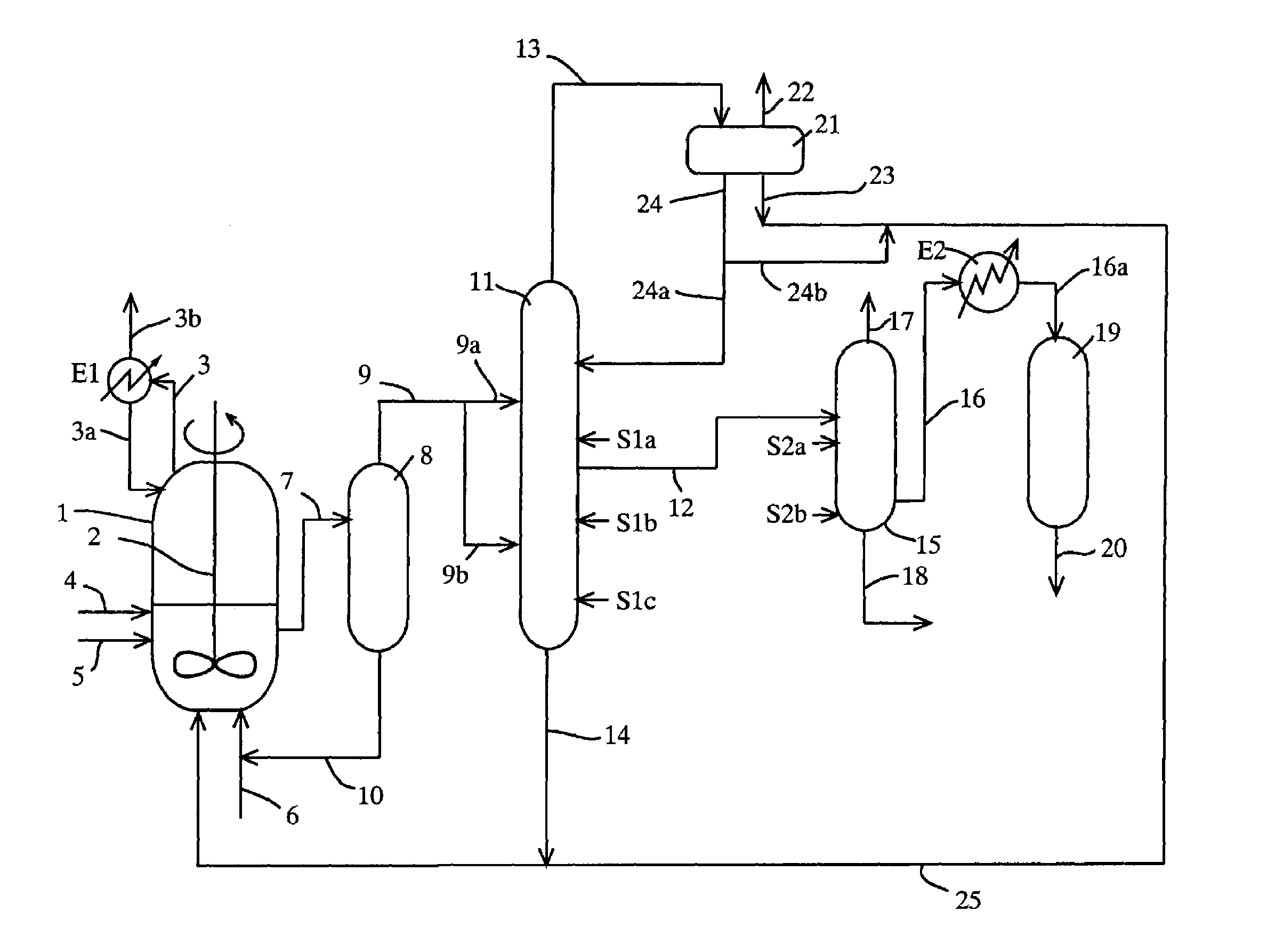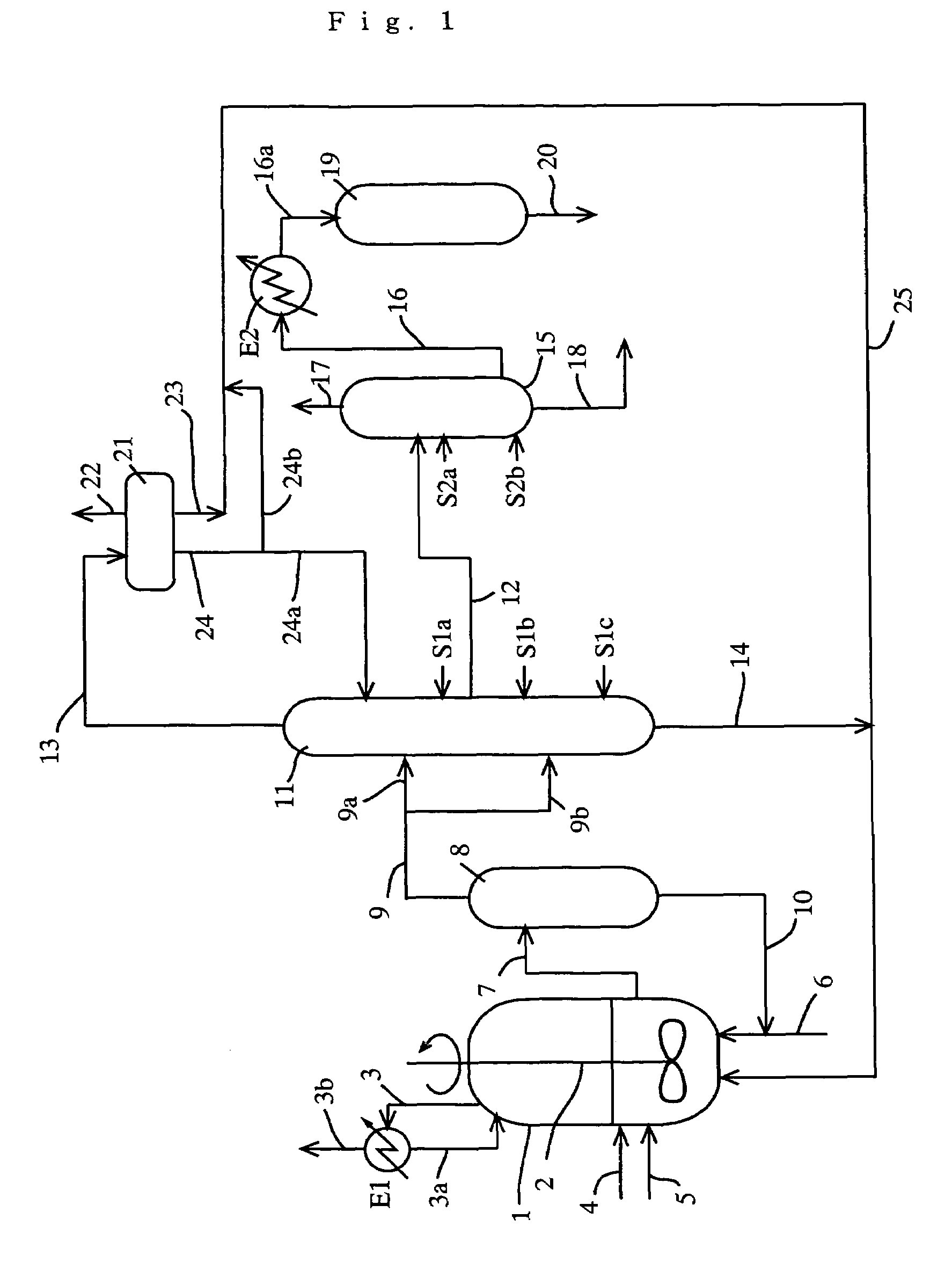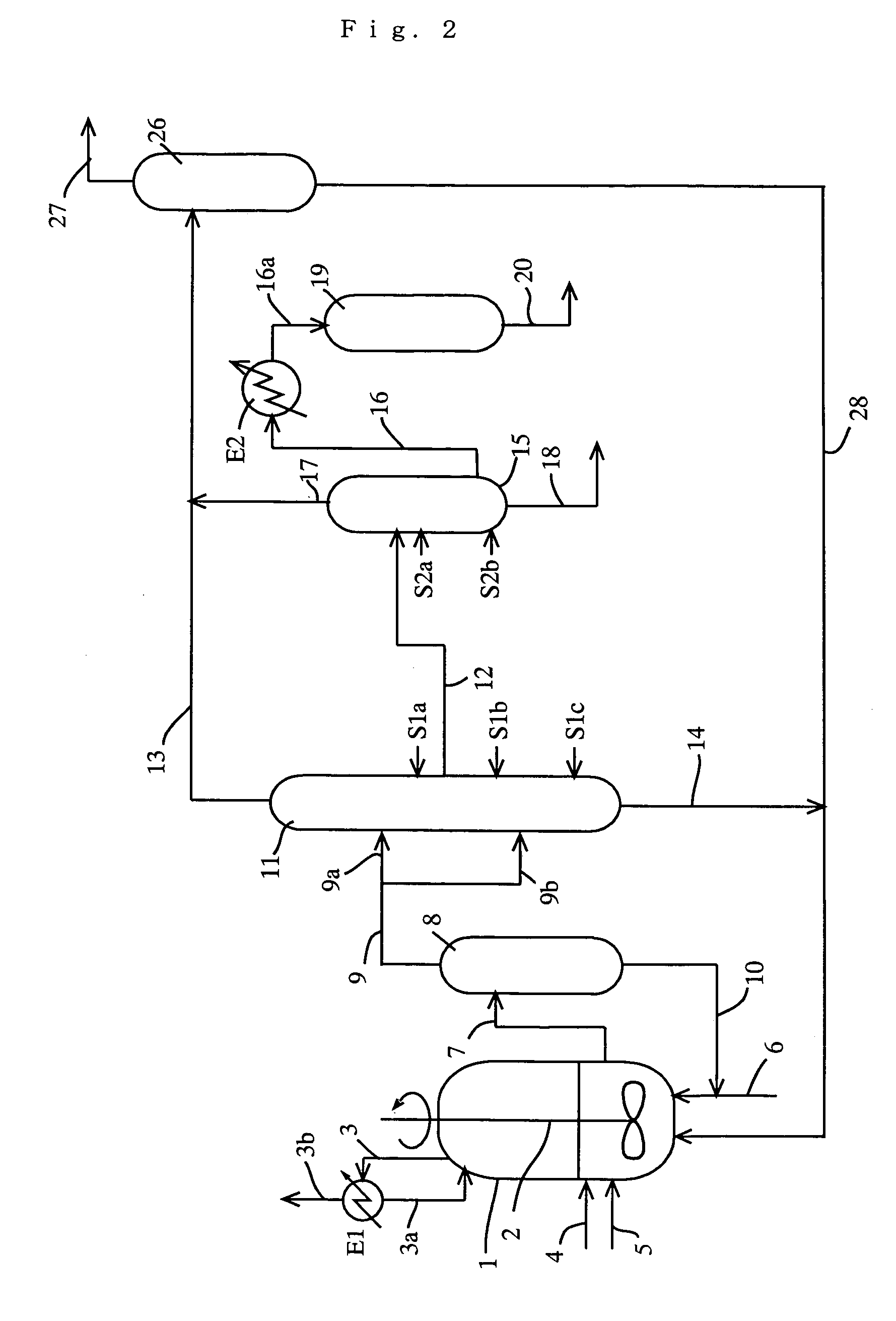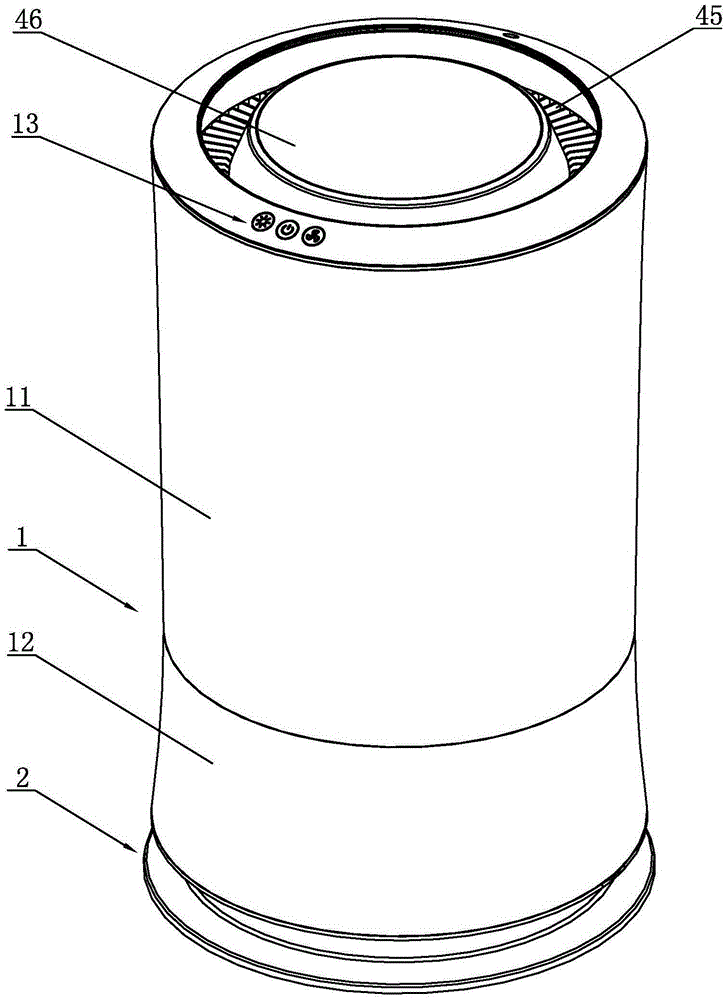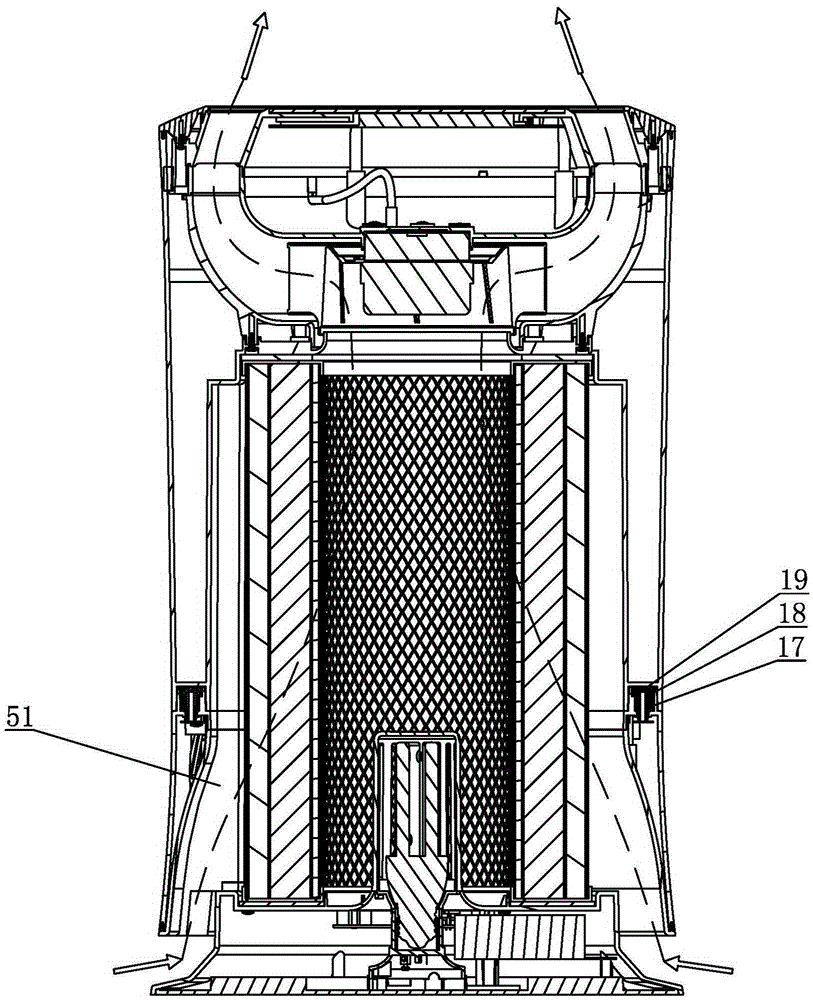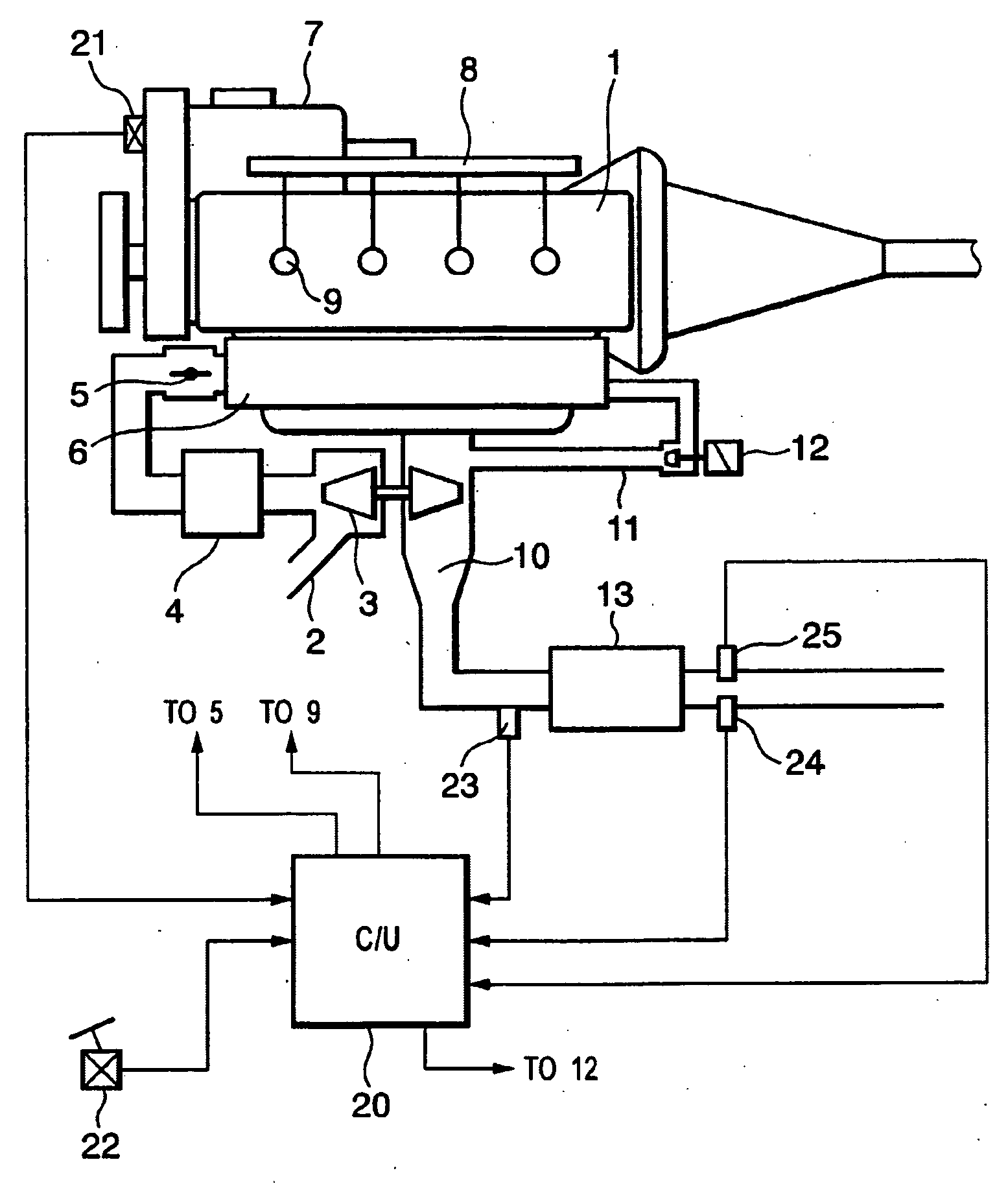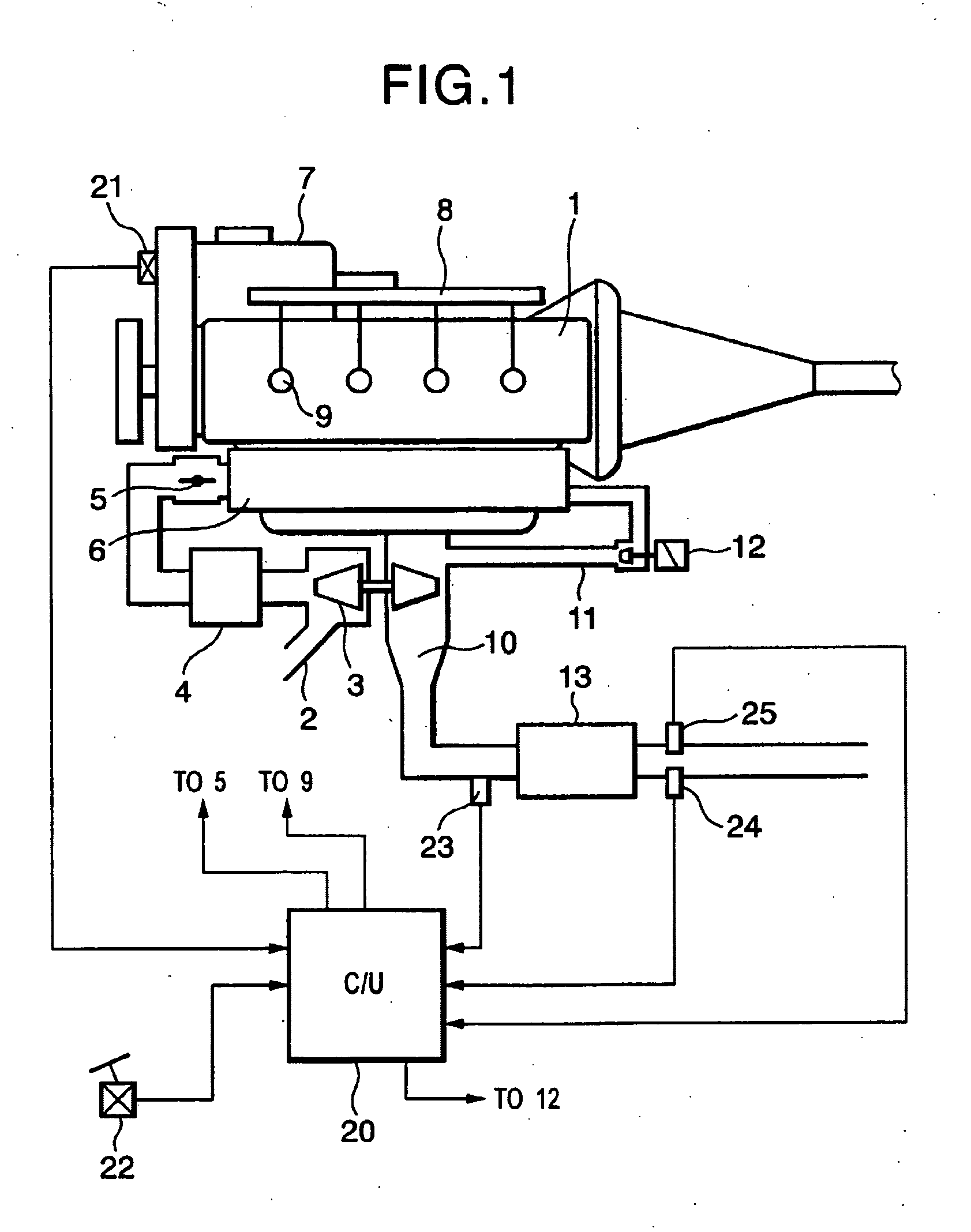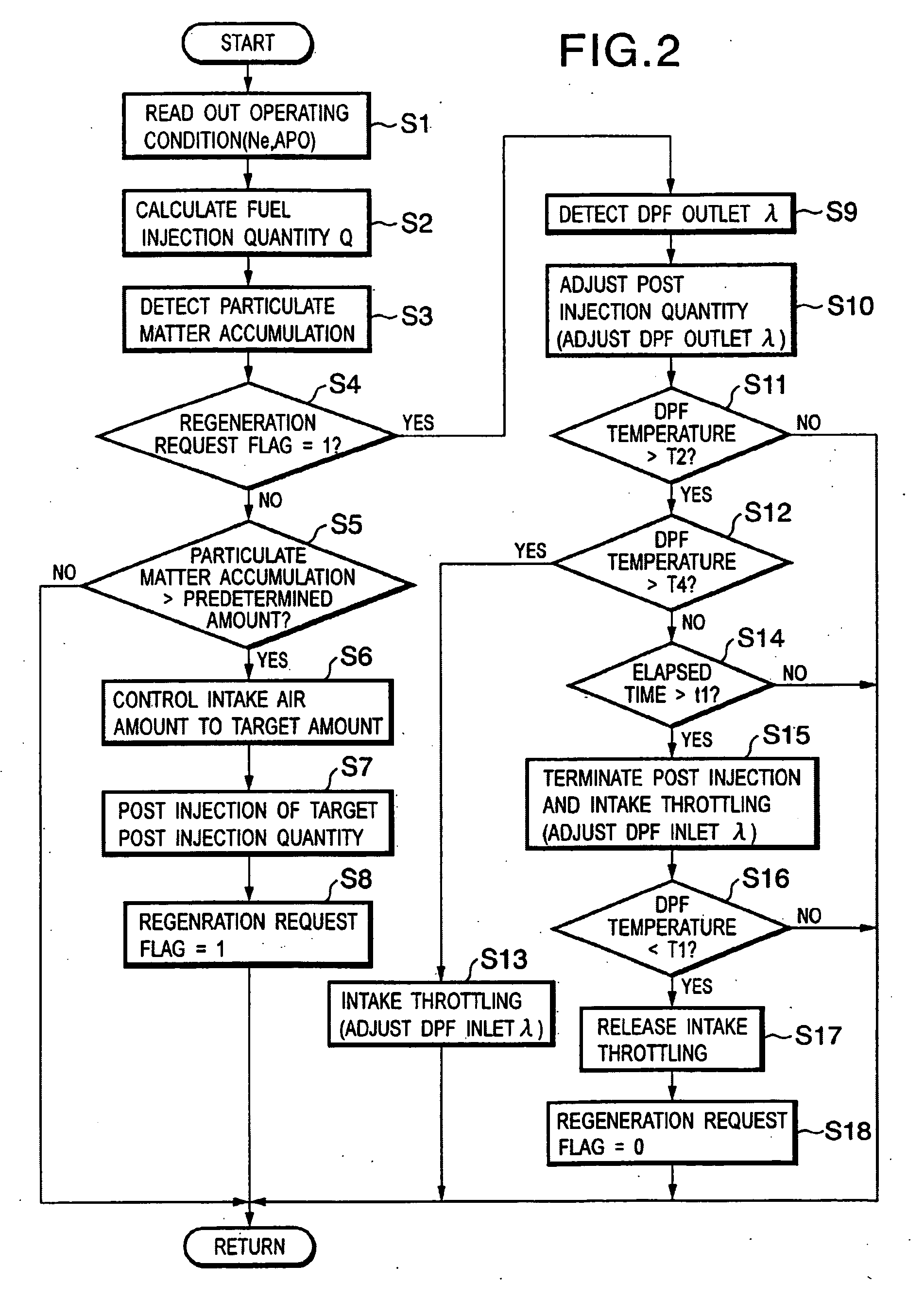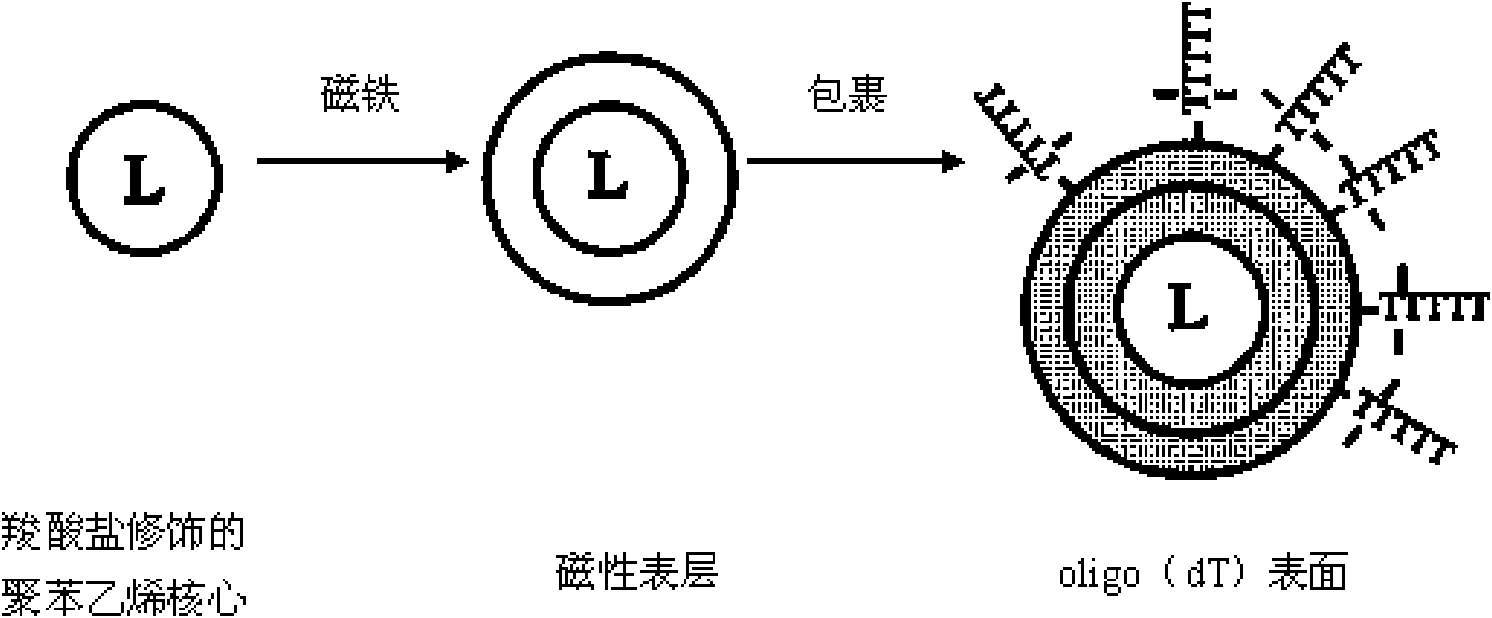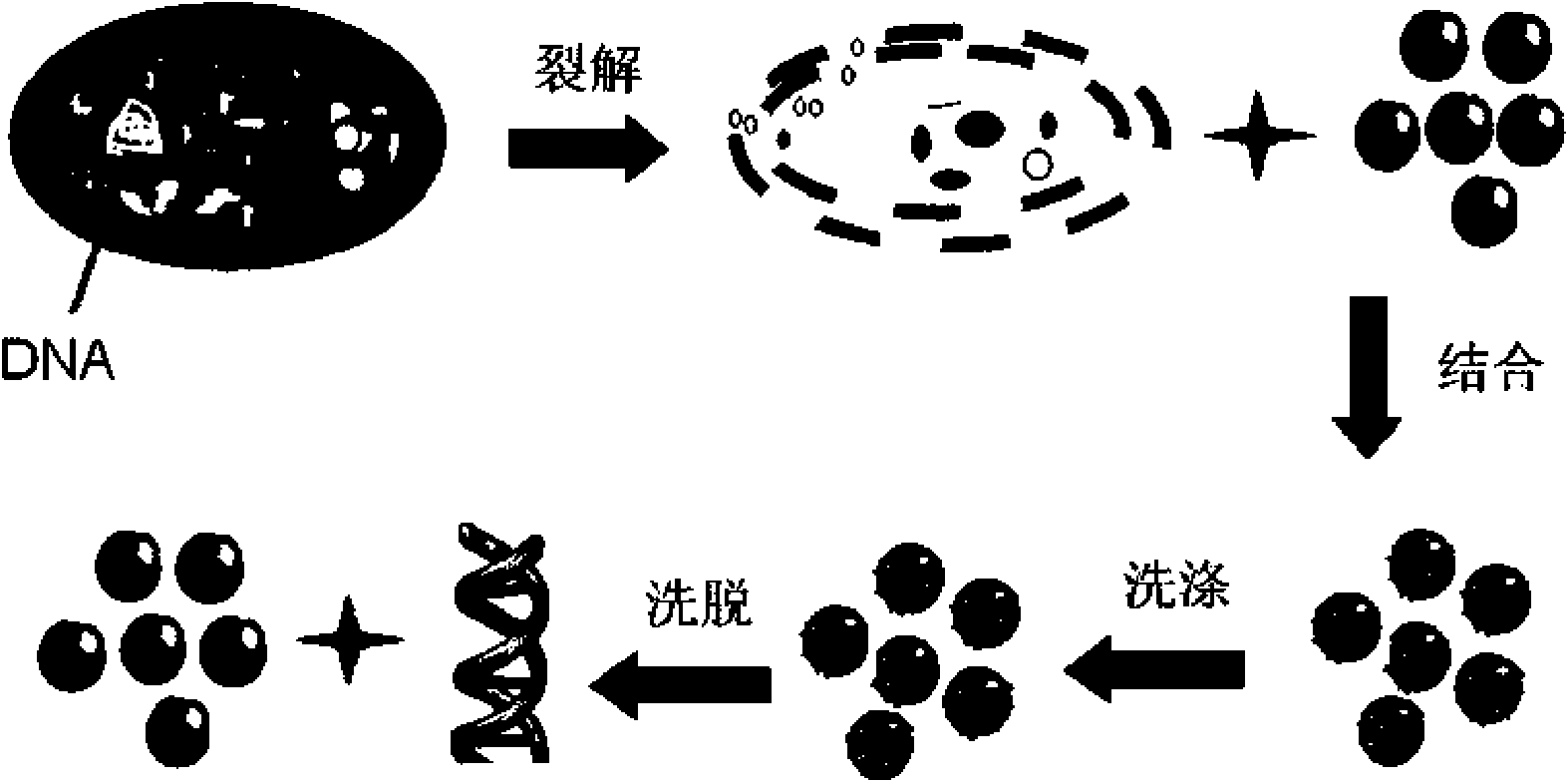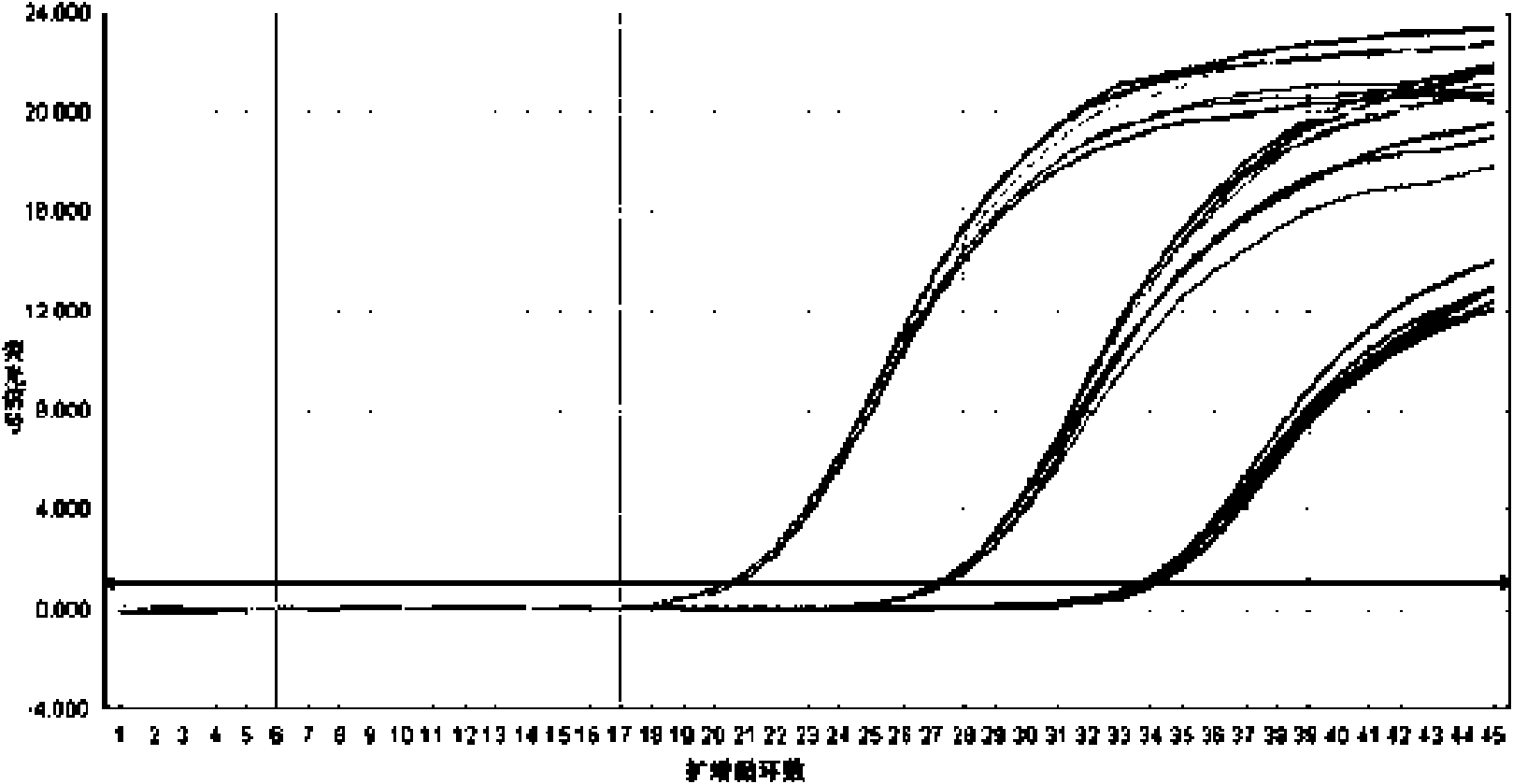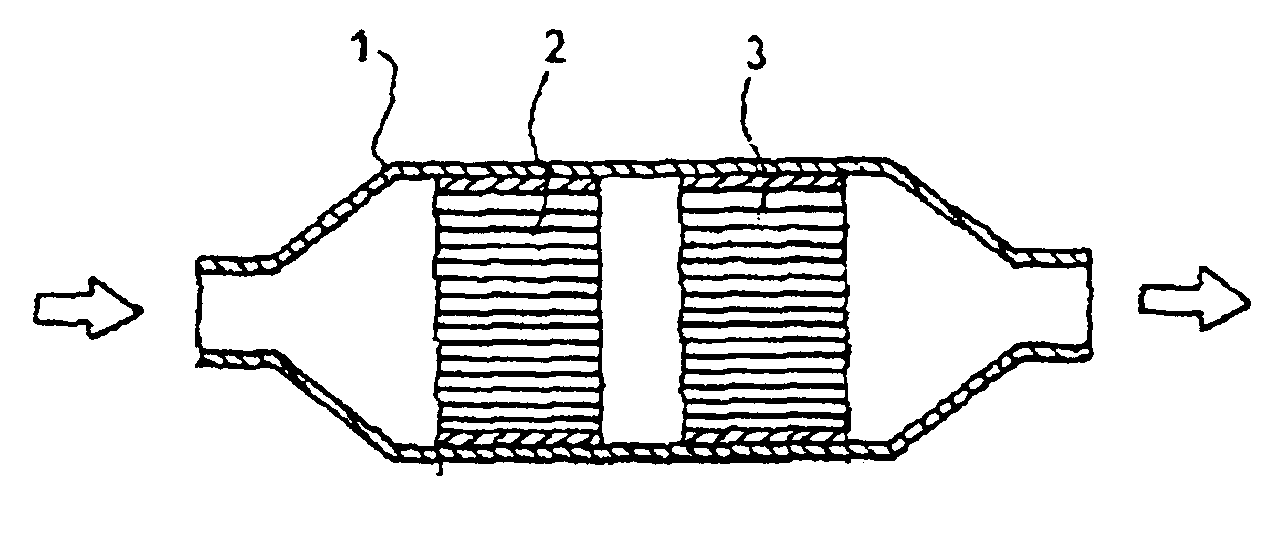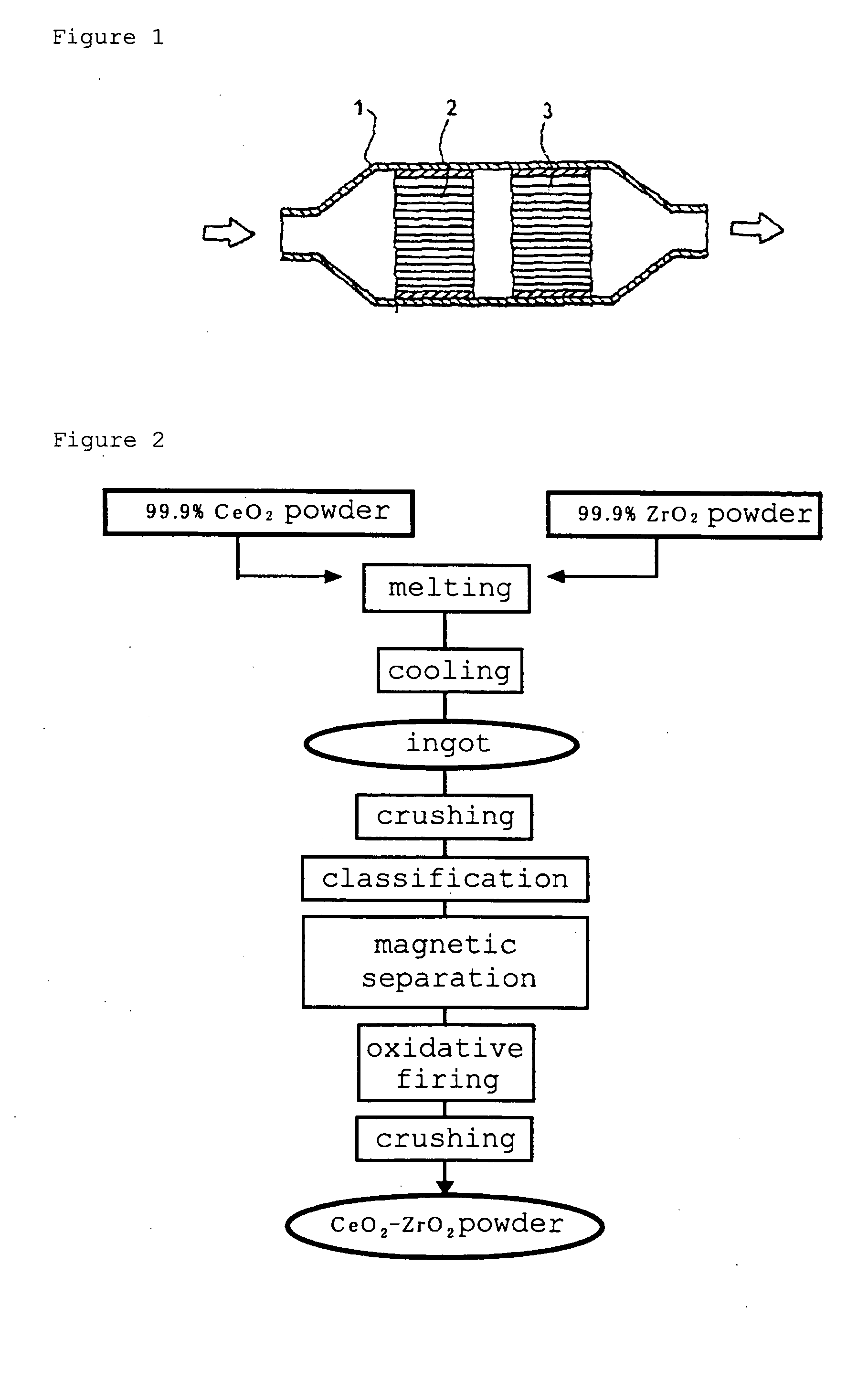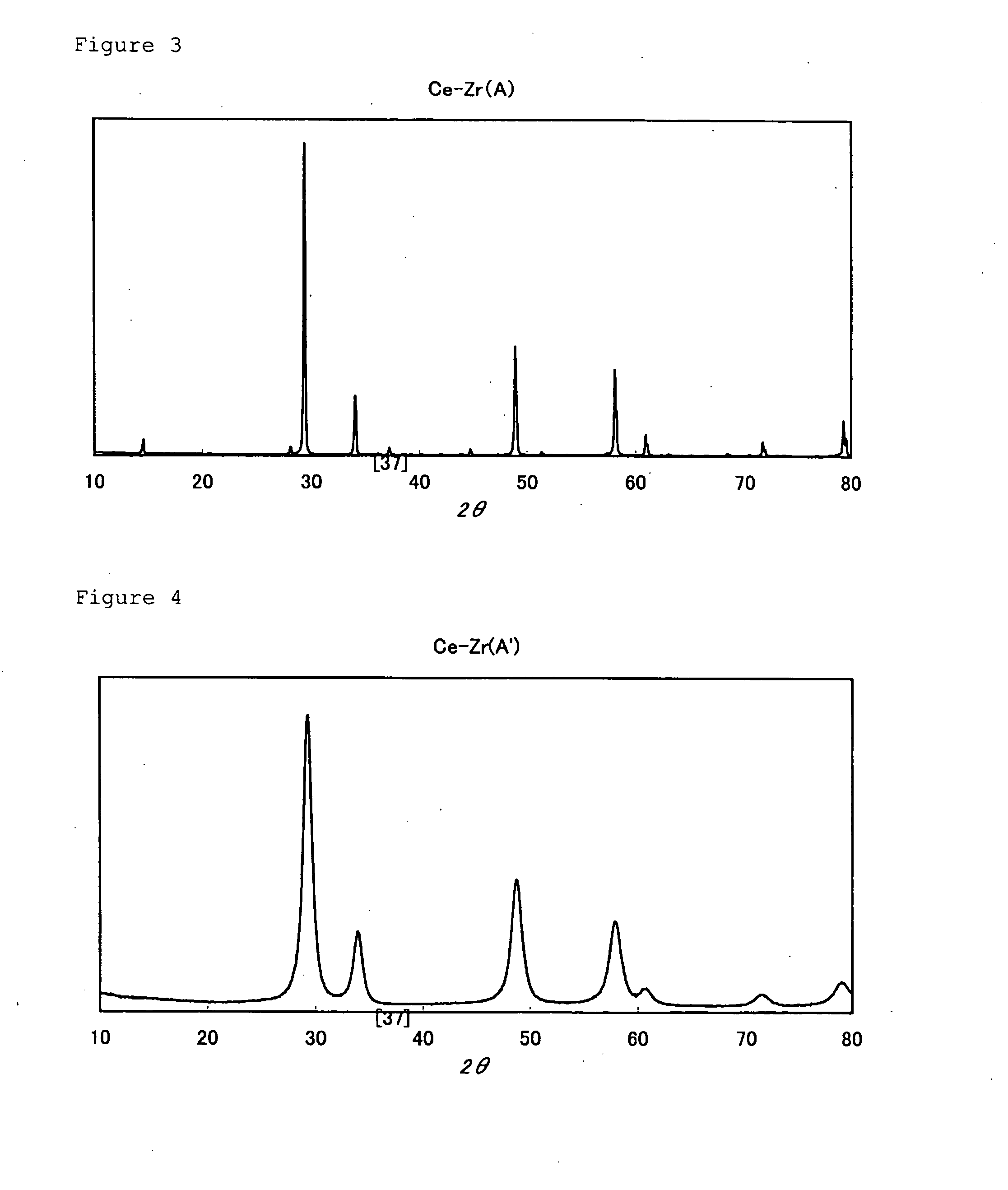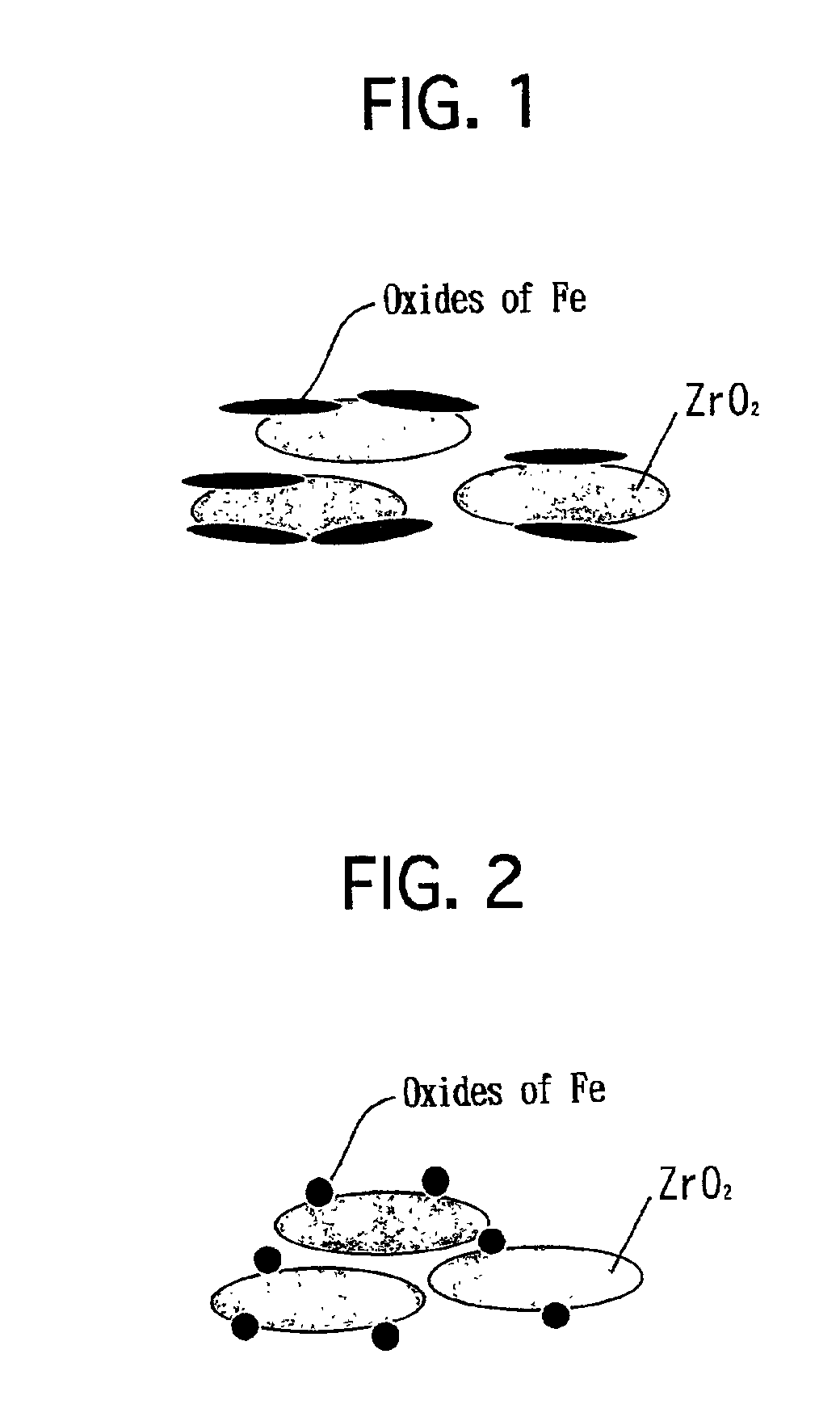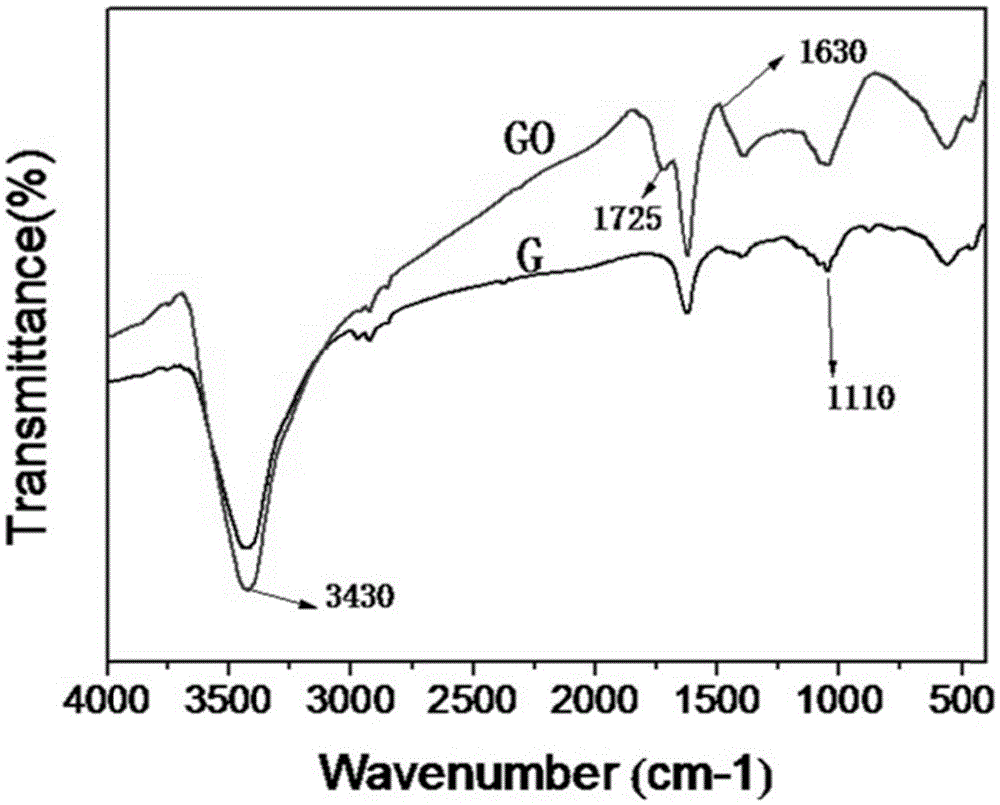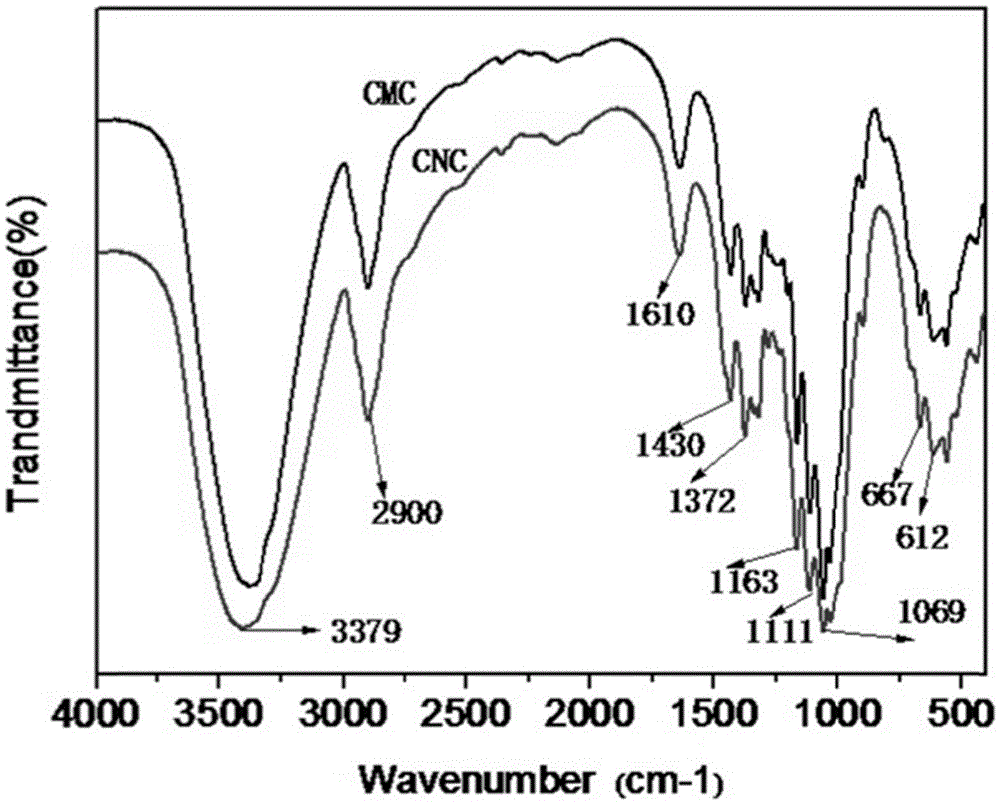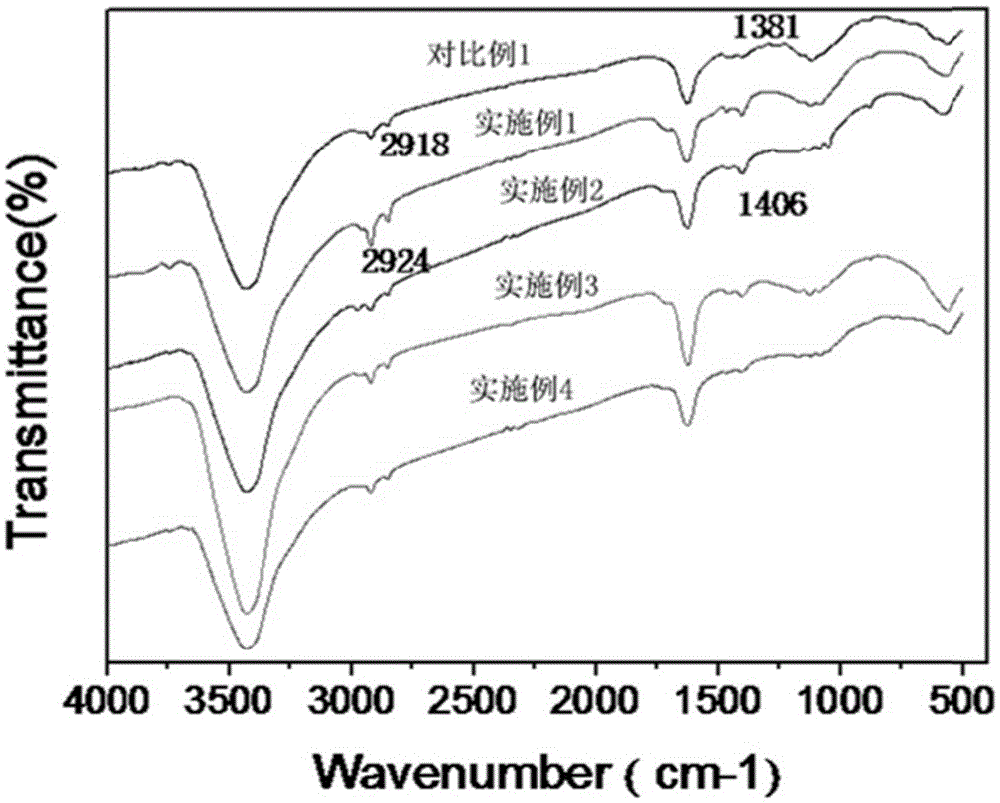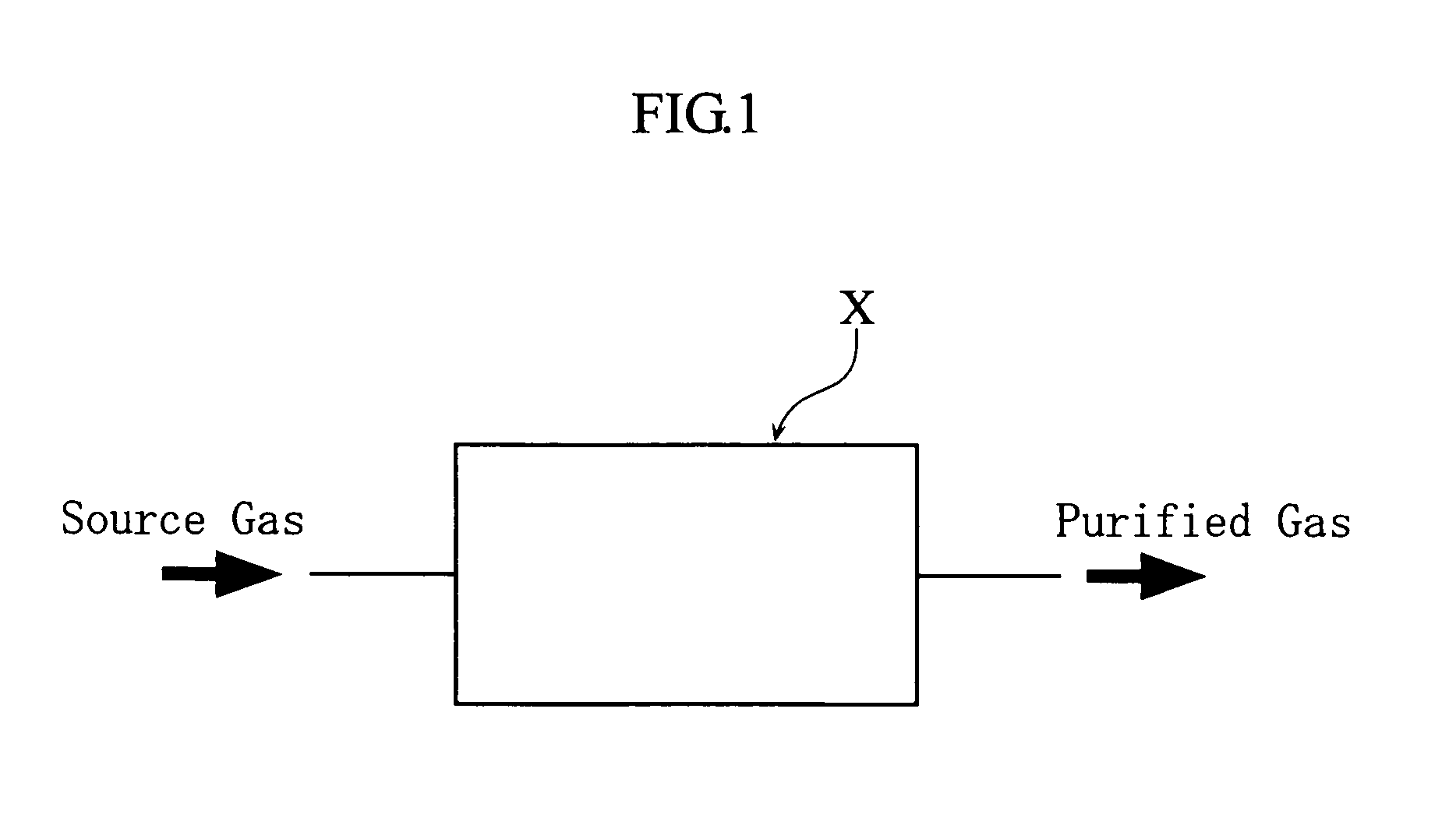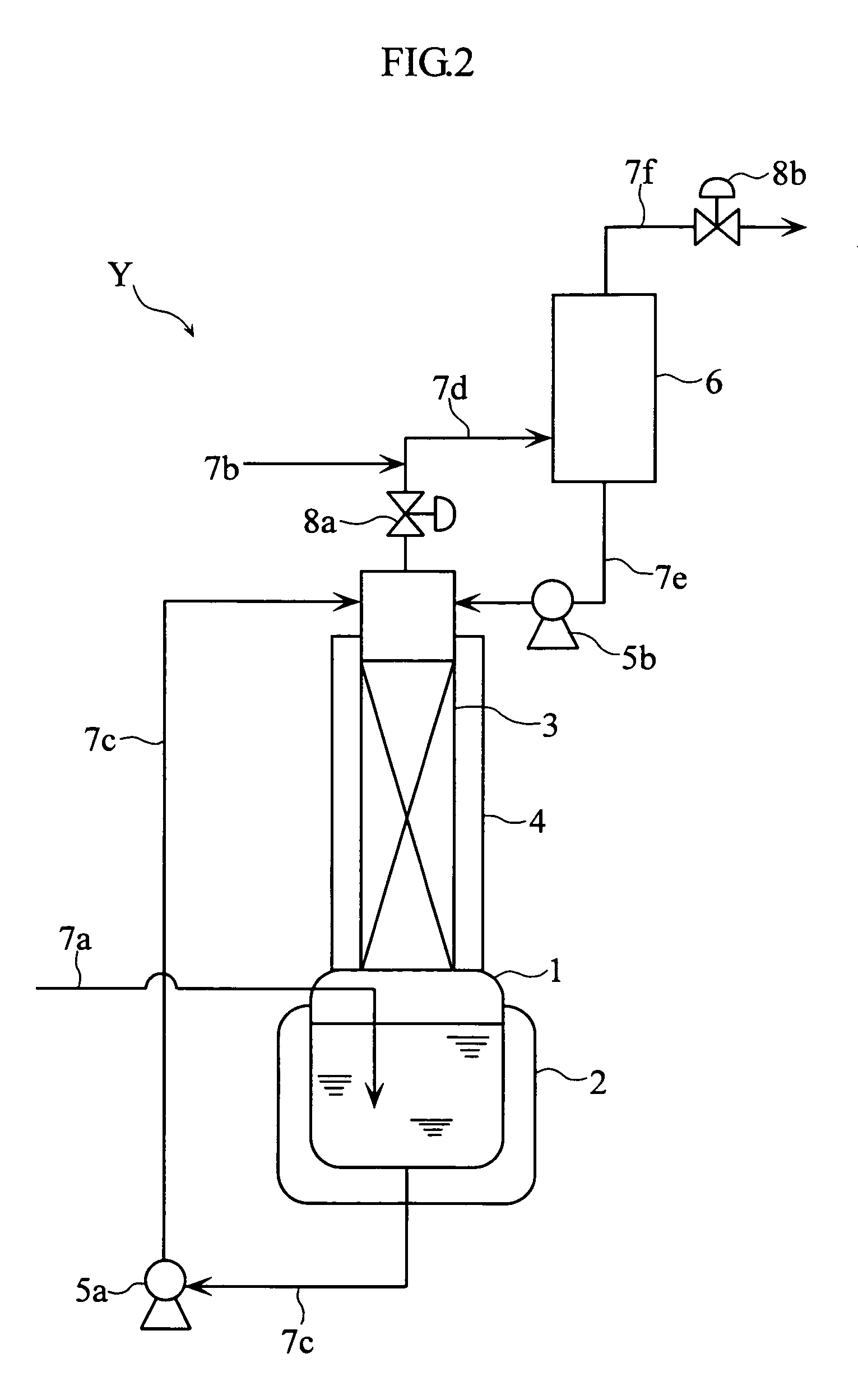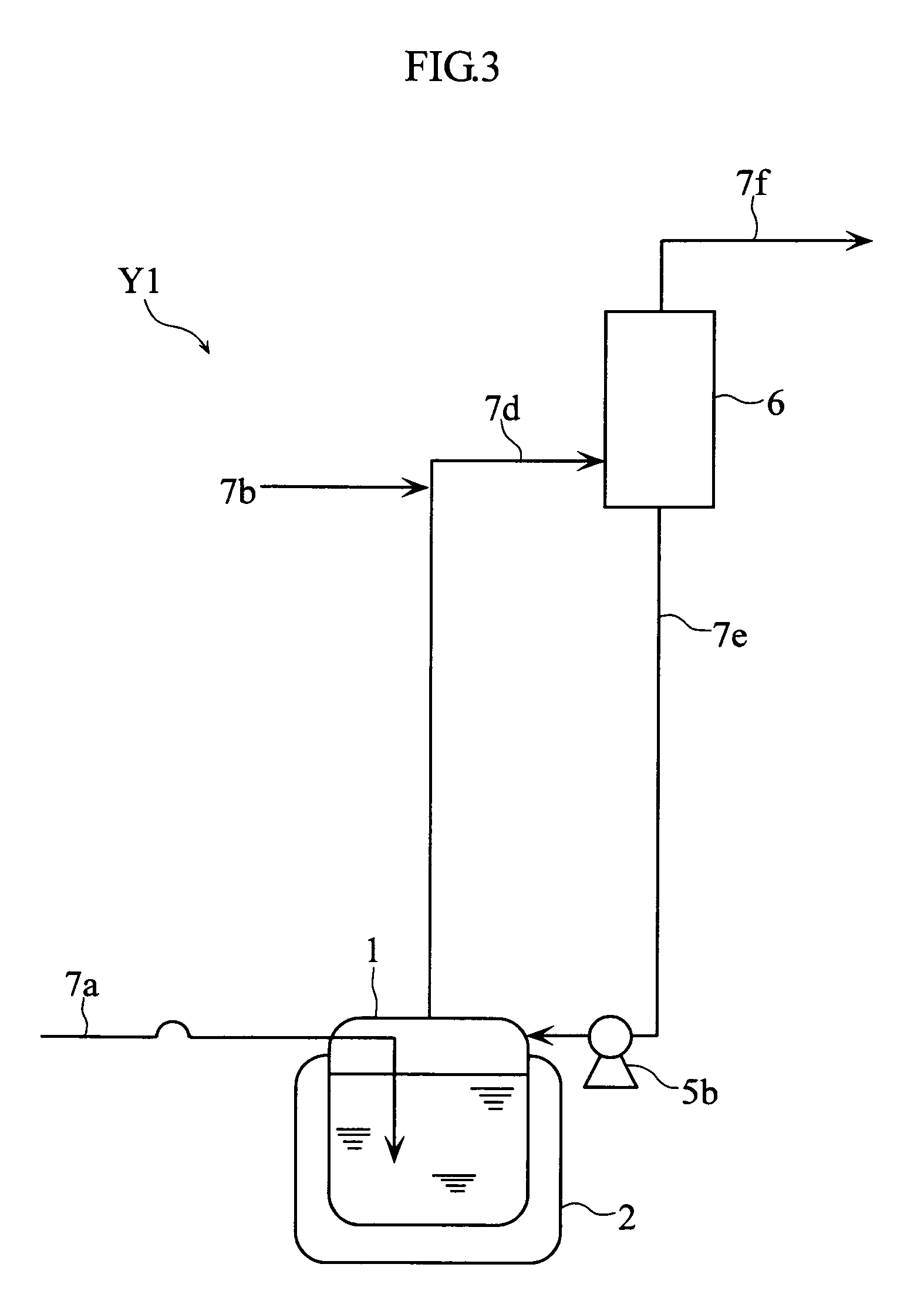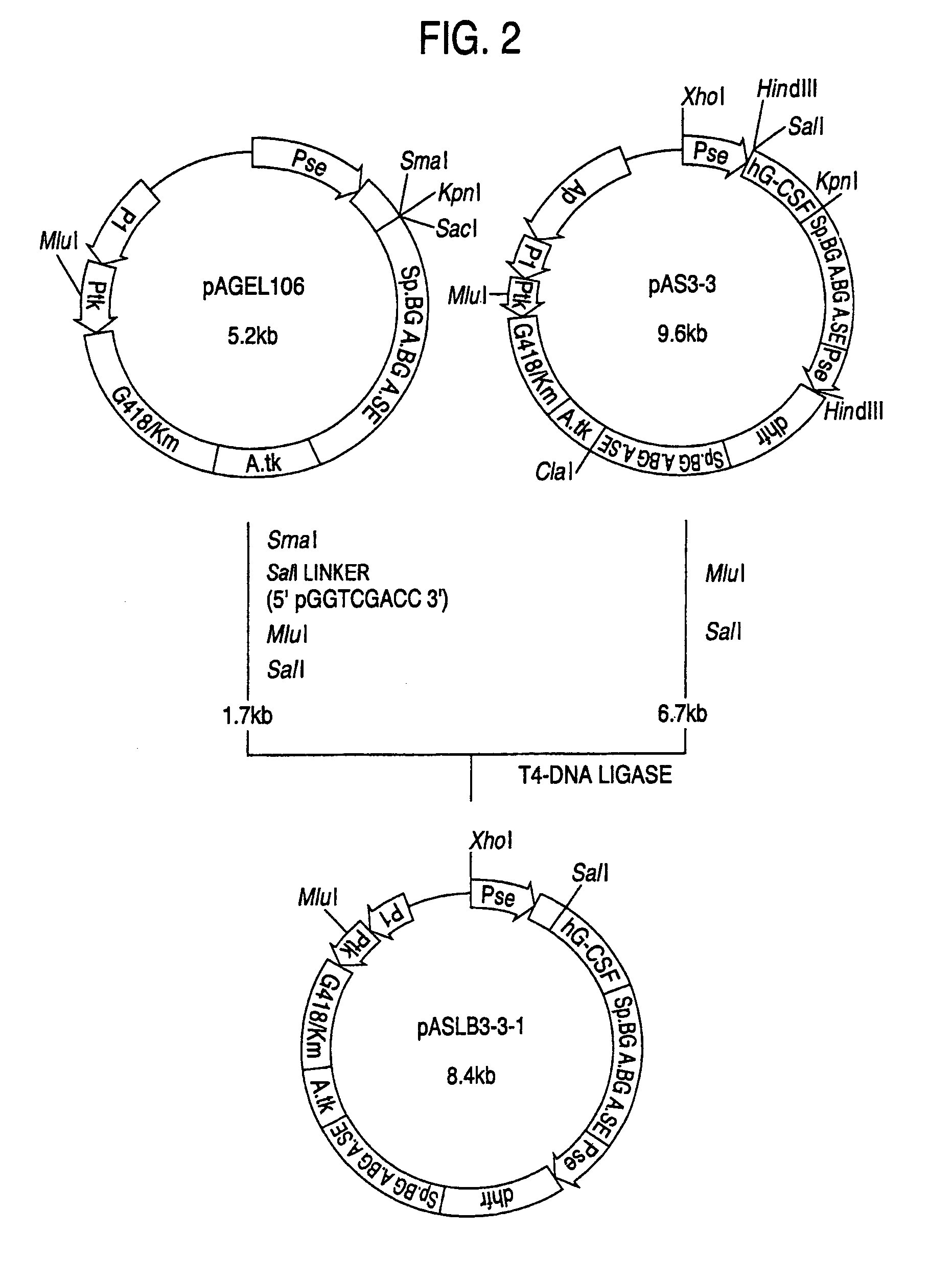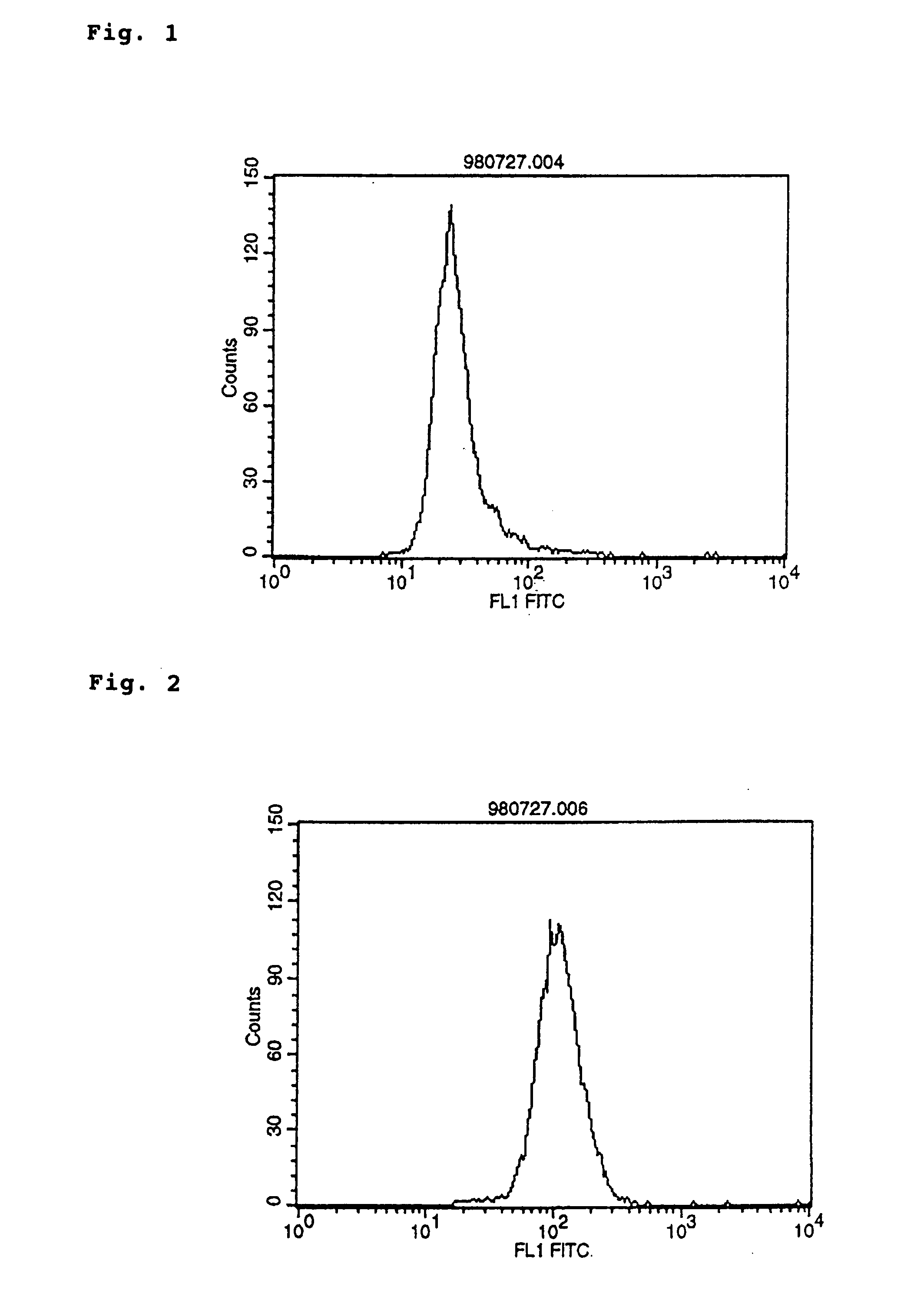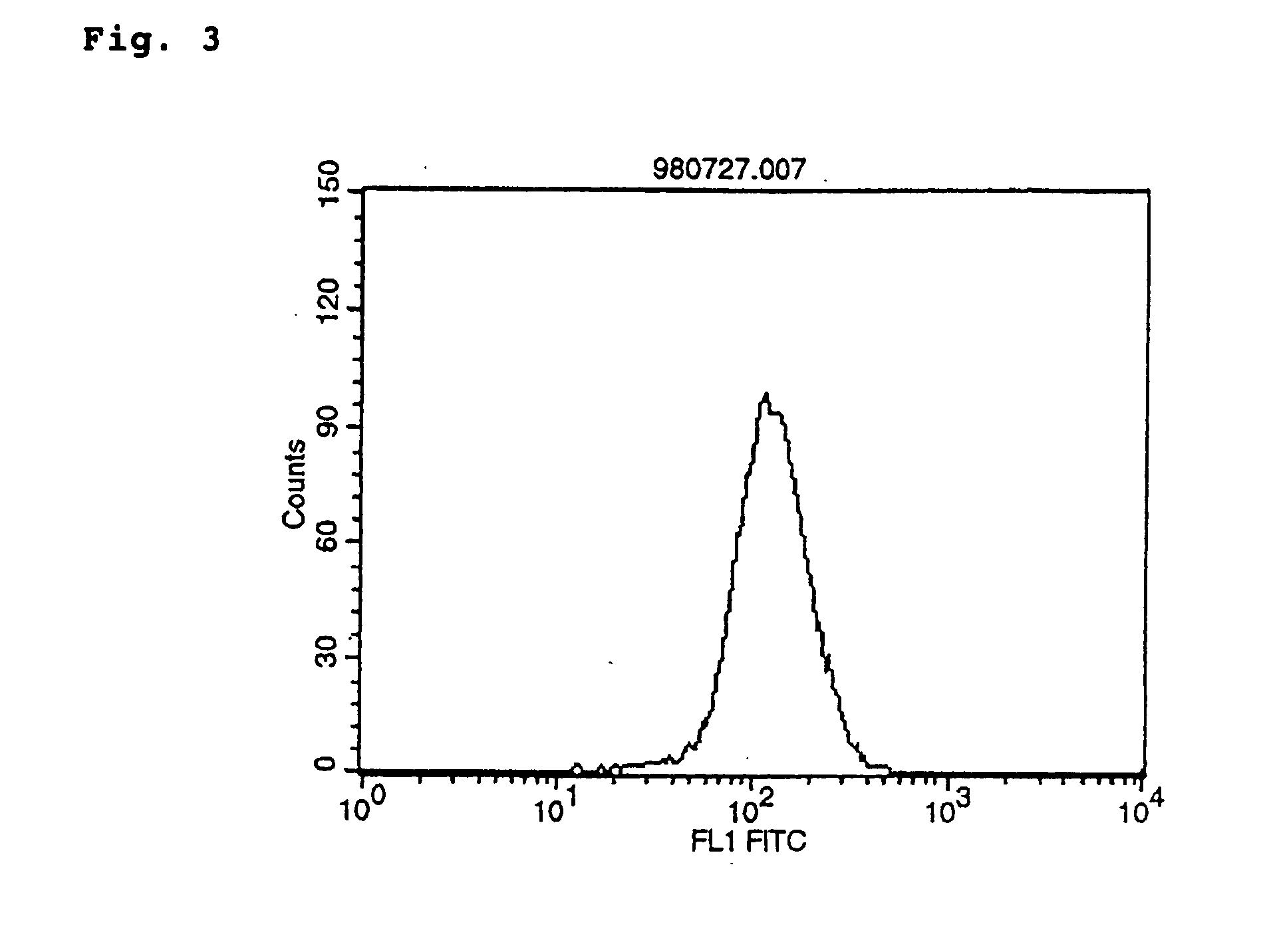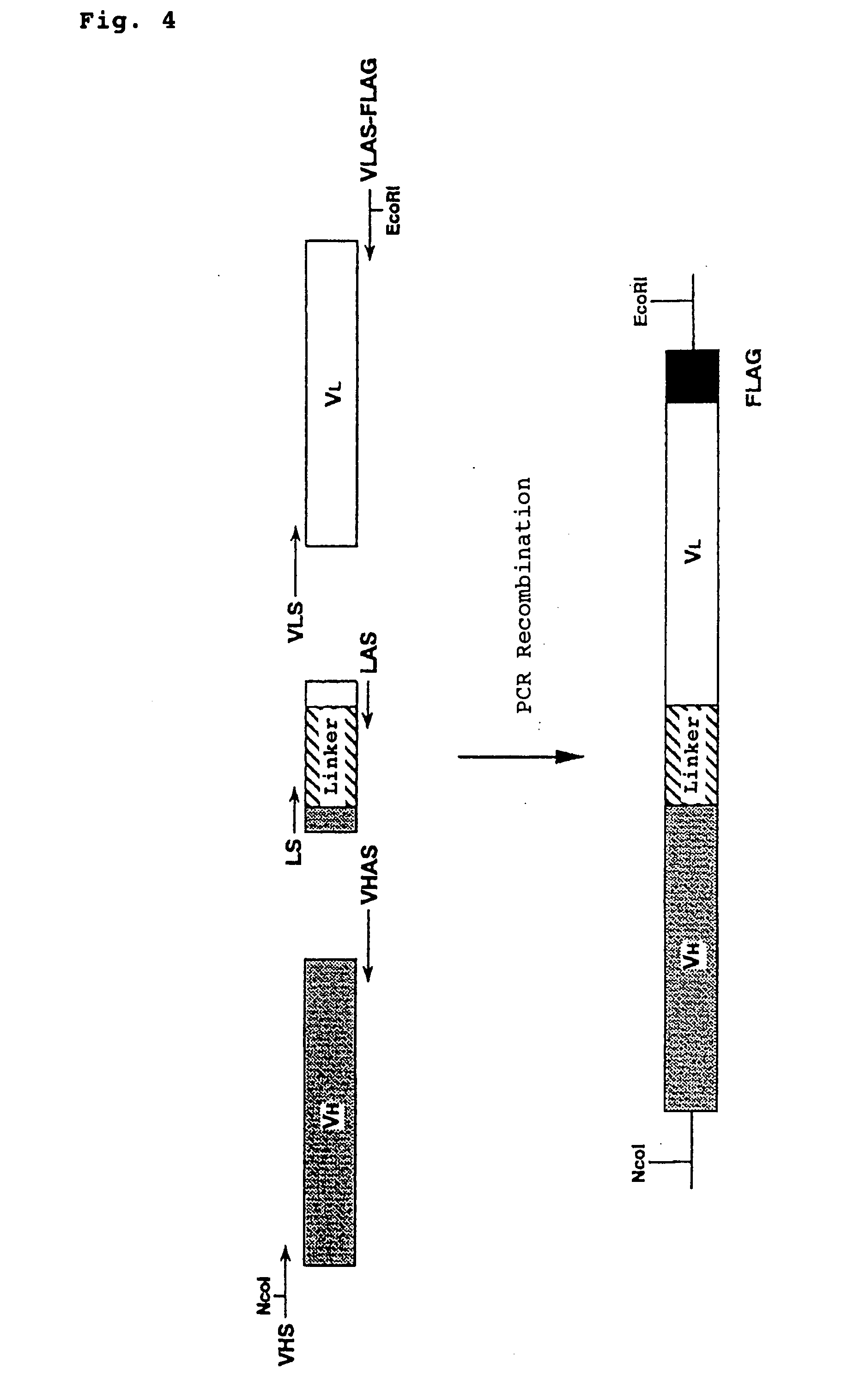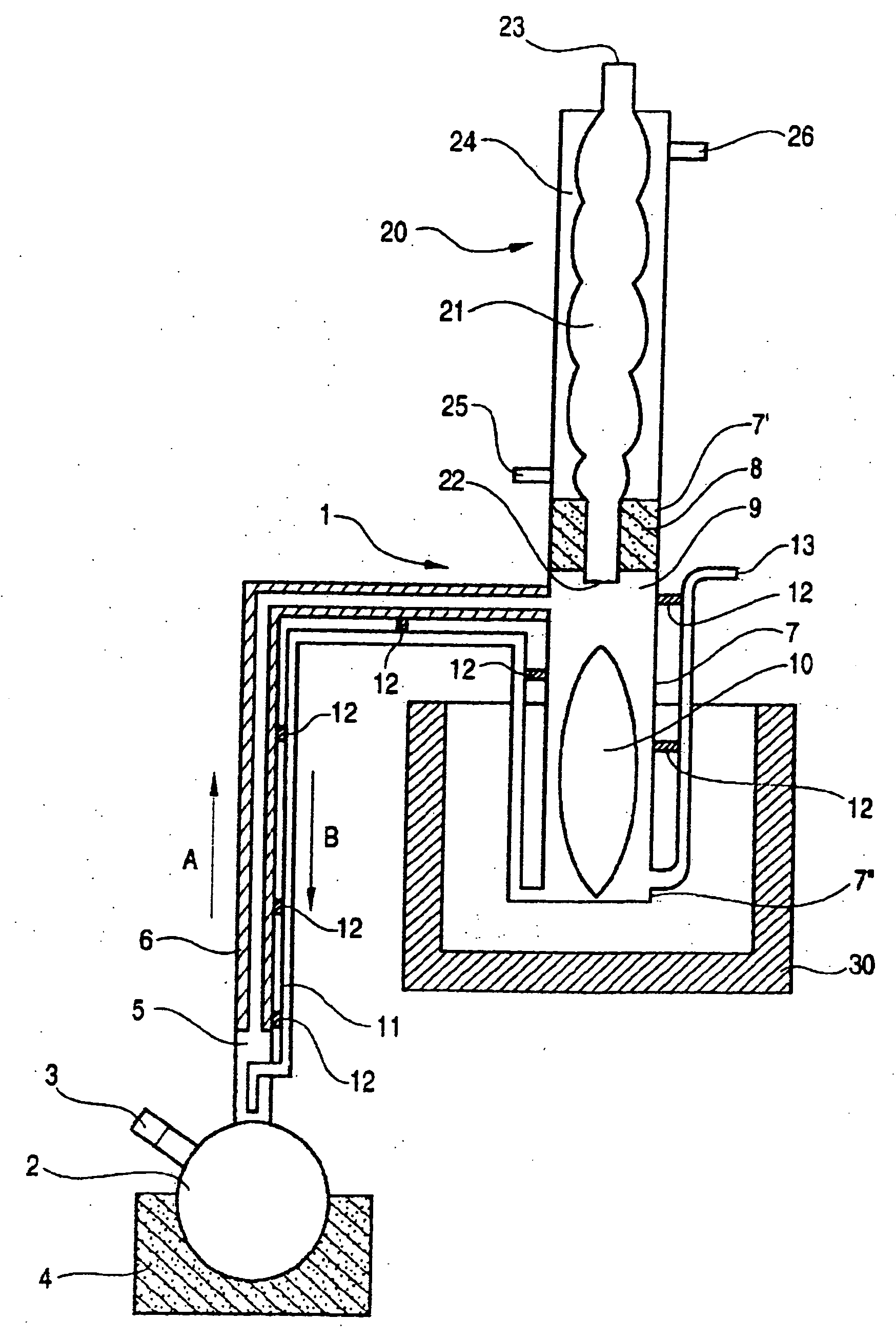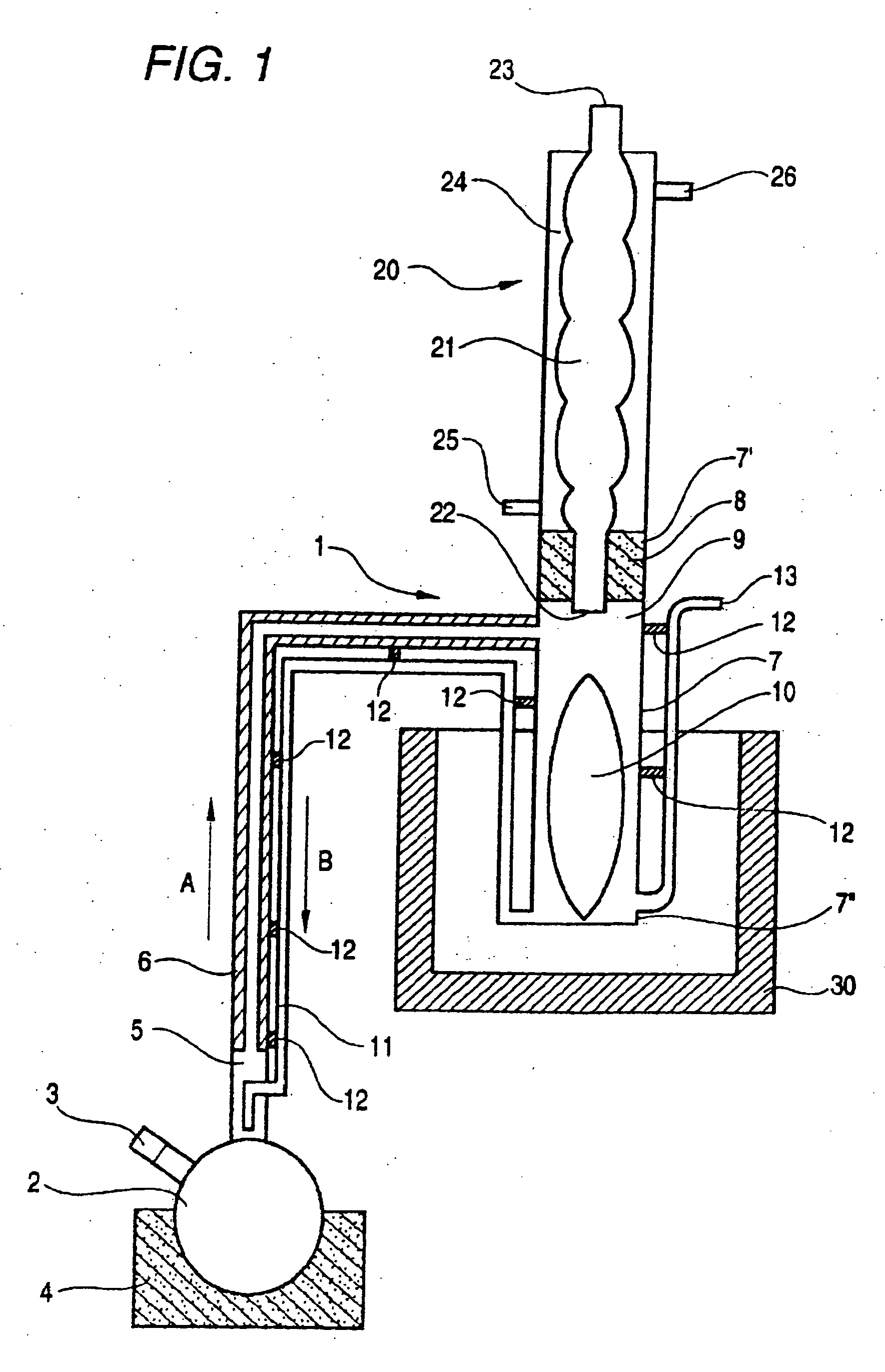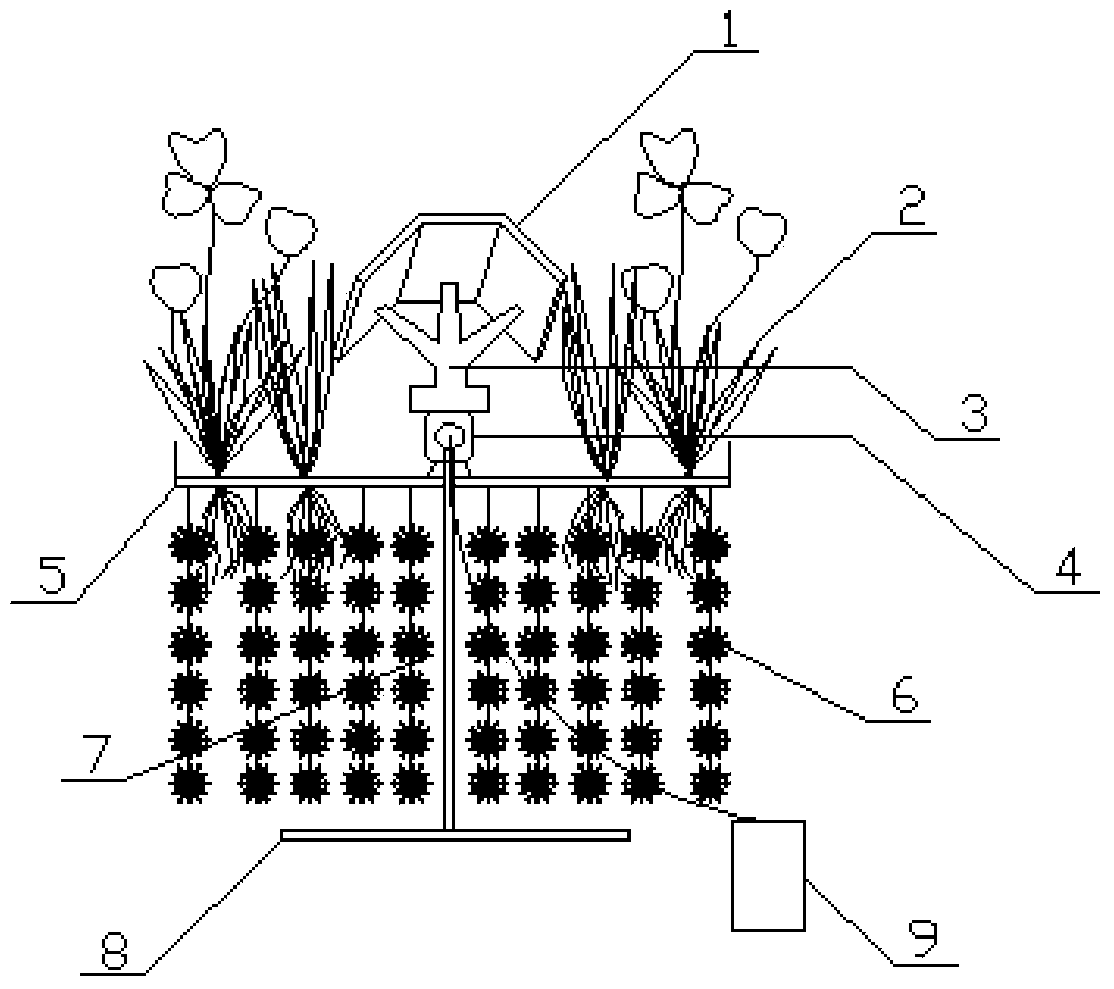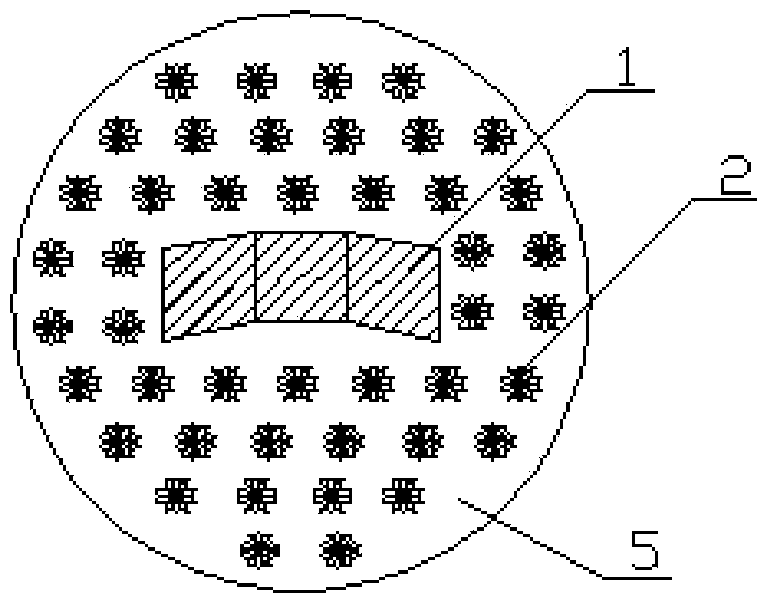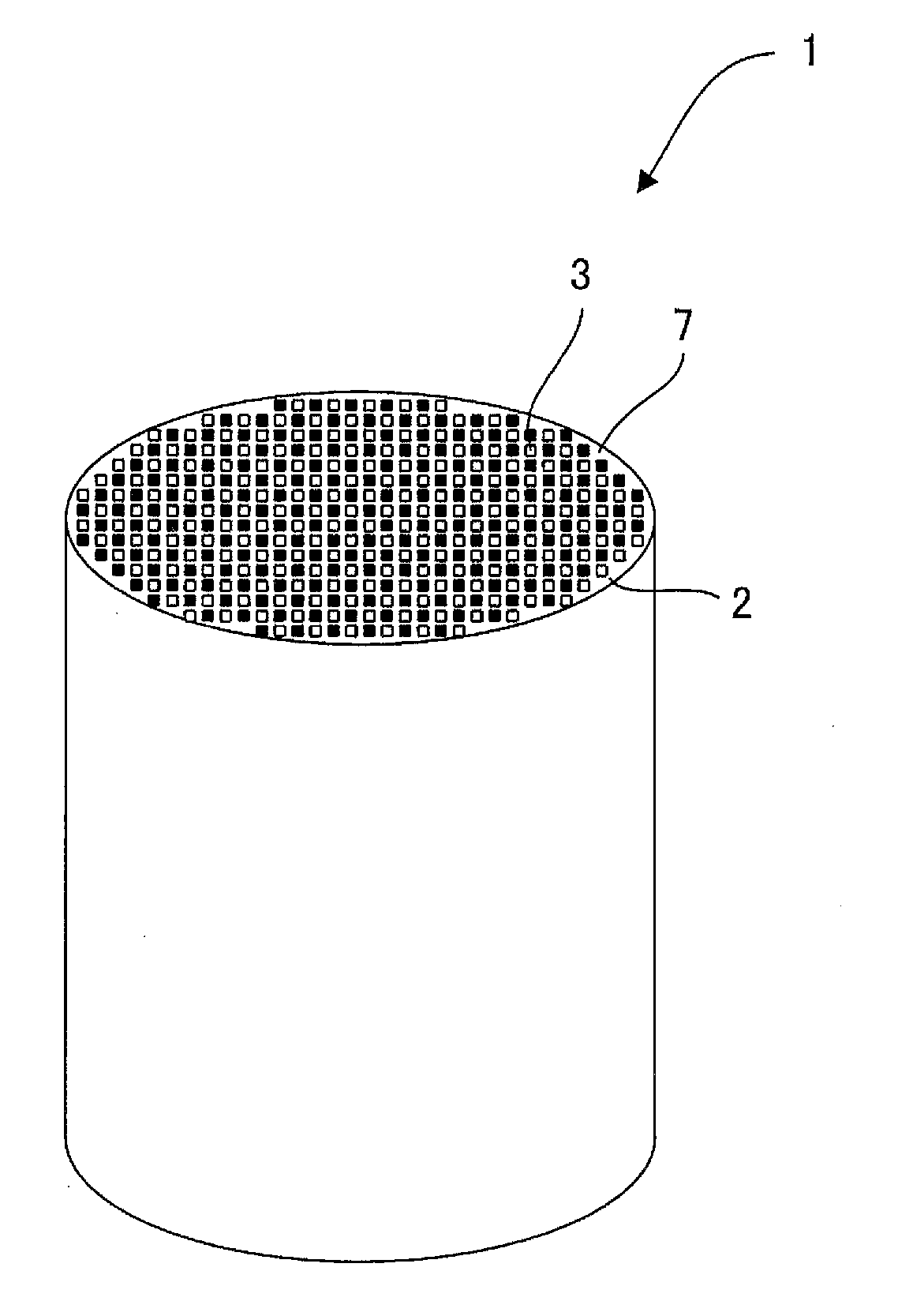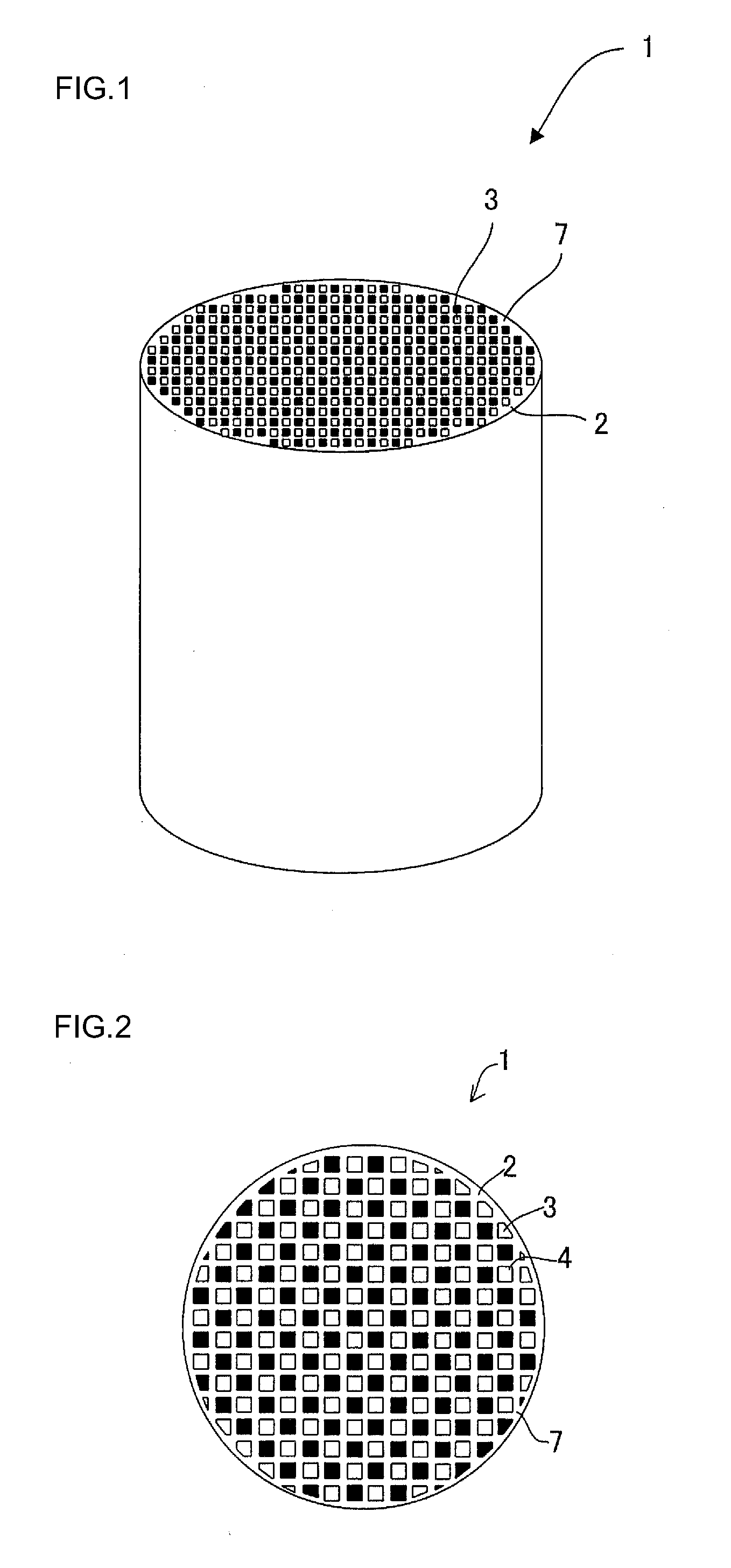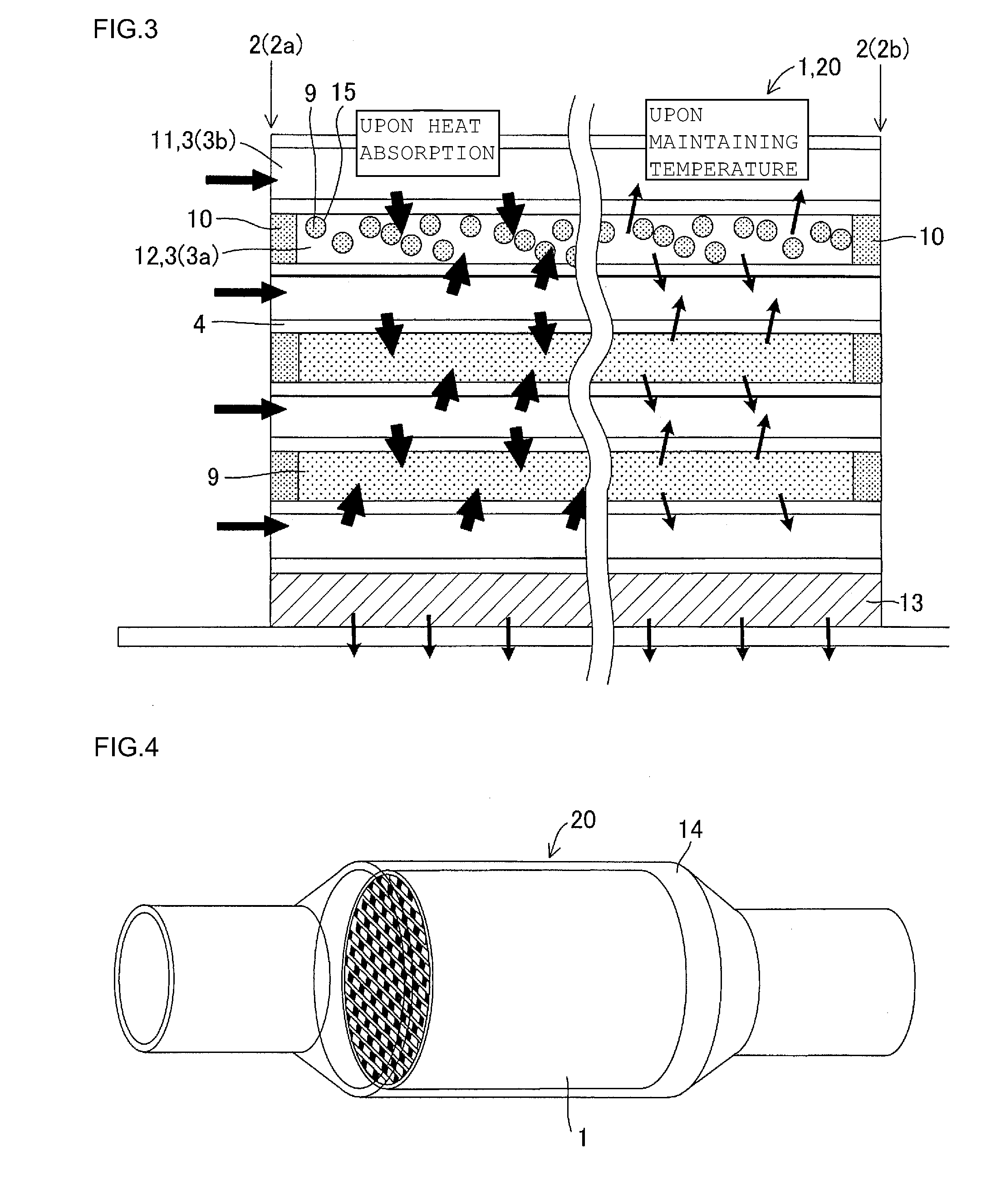Patents
Literature
Hiro is an intelligent assistant for R&D personnel, combined with Patent DNA, to facilitate innovative research.
3229results about How to "Efficient purification" patented technology
Efficacy Topic
Property
Owner
Technical Advancement
Application Domain
Technology Topic
Technology Field Word
Patent Country/Region
Patent Type
Patent Status
Application Year
Inventor
Methods of modifying antibodies for purification of bispecific antibodies
ActiveUS20090263392A1Efficient purificationFunction increaseSugar derivativesAntibody ingredientsAntiendomysial antibodiesBinding site
The present inventors devised methods for efficiently purifying bispecific antibodies using a chromatography column based on the difference in isoelectric points between the H chains of two types of antibodies, wherein the difference is introduced by modifying the amino acids present on the surface of the antibody variable regions of two types of antibodies that constitute a bispecific antibody. Furthermore, the inventors devised methods for efficiently purifying bispecific antibodies using a chromatography column by linking respective antigen binding sites (heavy chain variable regions) to the antibody constant regions having different isoelectric points, and then coexpressing these antibodies.
Owner:CHUGAI PHARMA CO LTD
Efficient water treatment flocculant
InactiveCN101327976AEfficient purificationPromote generationWater/sewage treatment by flocculation/precipitationWater qualityHigh intensity
The invention relates to a high efficiency water treatment flocculant for drinking water and water treatment comprising a metal cation flocculant which is characterized in that the high efficiency water treatment flocculant also comprises a high efficiency adsorption component and an assistant medicament to be remixed, inwhich the weight ratio is: the high efficiency adsorption component 5-15%, the metal cation flocculant 50-85%, the assistant medicament 5-15%. The obvious characteristics of the invention are that each component can play the advantages of high intensity of the flocs of the inorganic flocculant and large flocs of the polymeric flocculant, overcomes the drawback of small flocs of the inorganic flocculant and low intensity of the flocs of the organic flocculant. The existence of the high adsorption component plays the action of adsorption of the organic compounds and heavy metal ion which are difficult to flocculat and precipitate, also plays the role of aid-coagulation, decoloration and deflavour. Thus the flocculant of the invention has advantages of good coagulation effect, large alum blossom, rapid settling velocity, good effluent quality and few dosage or the like.
Owner:郭振岳 +1
Method for removing pollutants in sewage
The invention belongs to the technical field of environmental protection, and discloses a method for removing pollutants in sewage. A composite microbial inoculant is used in the method and comprises rhodococcusrhodochrous, thiobacillus denitrificans, pseudomonas stutzeri, sphingomonas, bacillus pumilus and phanerochaete chrysosporium. According to the method, the pollutants are mainly treated by using microorganisms, so that the pollutants containing ammonia, nitrogen, sulfur and phosphorus can be effectively removed, and the investment cost is low; the method has broad application prospect.
Owner:JIANGSU LV CHUAN ENVIRONMENTAL PROTECTION TECH
Water Purifier System and Method
InactiveUS20090145855A1Efficient water purificationEfficient purificationWater/sewage treatment by irradiationWater treatment compoundsUltravioletReactor geometry
The invention provides a water purification system and method for combining ultraviolet germicidal irradiation and photocatalysis in a helical reactor geometry that maximizes both the photocatalytic efficiency and the germicidal dosage of the ultraviolet irradiation in deactivation of microbes and the destruction of contaminant organic compounds.
Owner:NOVAPURE SYST
Charge barrier flow-through capacitor
InactiveUS20050103634A1Improve efficiencyEfficient purificationSludge treatmentSeawater treatmentIon trap mass spectrometryCapacitor
Flow-through capacitors are provided with one or more charge barrier layers. Ions trapped in the pore volume of flow-through capacitors cause inefficiencies as these ions are expelled during the charge cycle into the purification path. A charge barrier layer holds these pore volume ions to one side of a desired flow stream, thereby increasing the efficiency with which the flow-through capacitor purifies or concentrates ions.
Owner:VOLTEA
Process for producing carboxylic acid and system for producing the same
InactiveUS20060011462A1Cost reductionEfficient purificationOrganic chemistry methodsDistillation in boilers/stillsProtein carbonylChemistry
In the presence of a catalytic system, an alcohol having “n” carbon atom(s) or a derivative thereof is allowed to react with carbon monoxide in a reactor 3 continuously, a higher bp catalyst component is separated from the resultant reaction mixture by a catalyst-separating column 5 to give a crude mixture, the crude mixture is fed to a higher bp component-separation column 8 to separate an overhead fraction from a bottom fraction containing at least a carboxylic acid having “n+2” carbon atoms, the overhead fraction is fed to a carboxylic acid-separating column 11, and are distilled in the presence of at least water and an ester of the carboxylic acid with the alcohol to separate a overhead fraction containing at least the ester and water from a bottom fraction containing the carboxylic acid having “n+1” carbon atoms. The overhead fraction from the carboxylic acid-separating column is fed to an aldehyde-separating column 14 to remove an overhead fraction containing an aldehyde. Such a process insures that impurities are efficiently separated from a reaction mixture by carbonylation of an alcohol, and that a carboxylic acid is purified easily at a lower cost.
Owner:DAICEL CHEM IND LTD
Composite oxide, process for producing the same, catalyst for purifying exhaust gas, and process for producing the same
InactiveUS20020049137A1Efficient purificationImprove heat resistanceCatalyst carriersMolecular sieve catalystsExhaust gasComposite oxide
A composite oxide includes agglomerated particles which have an average particle diameter of 20 mum or less, which are composed of a plurality of metallic element oxides being in form of fine particles having an average diameter of 50 nm or less, and which have a surface and an inner portion whose metallic element distributions differ with each other. The characteristics of the respective metallic elements are exhibited maximally. Hence, it is extremely useful as a support for an exhaust gas purifying catalyst. The catalyst exhibits the activities which degrade less even after it is subjected to a sever durability, is good in terms of the heat and sulfur-poisoning resistance, and can efficiently purify the harmful components in exhaust gases. Moreover, it is possible to produce such a composite oxide and catalyst easily and stably by production processes disclosed herein.
Owner:TOYOTA CENT RES & DEV LAB INC
Exhaust gas purifying catalyst and method of producing same
InactiveUS6589901B2Improve heat resistanceReduce stickingInternal combustion piston enginesMolecular sieve catalystsColloidal silicaColloid
An exhaust gas purifying catalyst for exhaust gas discharged from an automotive internal combustion engine. The catalyst comprises a substrate over which a hydrocarbons adsorbing material layer is formed as a lower layer to absorb hydrocarbons contained in exhaust gas. The hydrocarbons adsorbing material layer contains zeolite and colloidal silica which has undergone firing. The colloidal silica is in a chain-like form and / or a spherical form before and after the firing. Additionally, a catalyst component layer is formed as an upper layer over the hydrocarbons adsorbing material layer. The catalyst component layer contains a catalyst metal.
Owner:NISSAN MOTOR CO LTD
Process for producing carboxylic acid
InactiveUS7678940B2Efficient separationHigh purityOrganic compound preparationCarboxylic compound separation/purificationHydrogen halideAlcohol
A process for producing a purified carboxylic acid having “n+1” carbon atoms comprises feeding a carboxylic acid stream containing a carboxylic acid having “n+1” carbon atoms, a hydrogen halide, a lower boiling point (bp) component, a higher bp component, and others to a first distillation column; separating a lower bp fraction containing part of the lower bp component and a higher bp fraction containing part of the higher bp component in the first column; withdrawing a side stream containing at least the carboxylic acid by side cut from the first column; feeding the side stream to a second distillation column; separating a lower bp fraction containing part of the lower bp component and a higher bp fraction containing part of the higher bp component in the second column; and withdrawing a side stream containing the carboxylic acid by side cut from the second column to recover a purified carboxylic acid; and the process further comprises feeding at least one first component (A) selected from the group consisting of an alcohol, corresponding to the carboxylic acid, having “n” carbon atom(s), and an ester of the alcohol with the carboxylic acid to the first column, and if necessary water. Such a process ensures reduction of the concentration of the hydrogen halide in the purified carboxylic acid.
Owner:DAICEL CHEM IND LTD
Indoor air purifier
InactiveCN105333528AEfficient purificationImprove purification effectMechanical apparatusLighting and heating apparatusActivated carbonHEPA
The invention discloses an indoor air purifier which comprises a tank, a base and a filter mechanism. Keys are mounted on the tank and the tank is mounted on the base. An air inlet is formed in the bottom of the tank, and an air outlet is formed in the top of the tank. A backwards-inclined centrifugal fan is arranged on the top of the tank, located over the filtering mechanism, and electrically connected with a power supply circuit of the whole purifier. The filter mechanism is arranged in an inner cavity of the tank and is of a cylindrical structure. The filter mechanism comprises a first aluminium alloy filter screen, a first sterilization cloth layer, an activated carbon layer, a second sterilization cloth layer, an high efficiency particulate air filter (HEPA) layer, a photocatalyst filter layer and a second aluminium alloy filter screen. The bottom of the filter mechanism is sealed, an annular air flue is formed between the outer wall of the filter mechanism and the inner wall of the tank and communicated with the air inlet, and an inner cavity of the filter mechanism is communicated with the air outlet. Through layered filtering and purifying effects of the filter mechanism, indoor air is effectively purified and exhausted out of the air outlet finally.
Owner:NINGBO BRYTY TECH CO LTD
Exhaust gas purification apparatus for internal combustion engine and method thereof
InactiveUS20050072141A1Efficient purificationCombination devicesElectrical controlParticulatesExternal combustion engine
According to the present invention, there is disposed in an exhaust passage of an internal combustion engine a filter that traps particulate matter In an exhaust gas, and a catalyst with a three-way function is carried on the filter. At the filter regeneration, by controlling such as an injection amount of post injection, an air-fuel ratio of the exhaust gas at an outlet of the filter is controlled to a stoichiometric ratio, and also by controlling such as an intake air throttle valve, an oxygen concentration of the exhaust gas at an inlet of the filter is controlled. Hence, at the filter regeneration, the particulate can be reliably burned and removed, and at the same time, NOx in addition to HC and CO can be purified.
Owner:NISSAN MOTOR CO LTD
Method for extracting and purifying nucleic acid from samples by magnetic beads
ActiveCN101665785AIncrease productionHigh puritySugar derivativesMicrobiological testing/measurementMagnetic beadElution
The invention relates to a method for extracting and purifying nucleic acid from samples by magnetic beads, which comprises the following steps: (1) magnetic bead treatment: modifying the magnetic beads by peptide-oligonucleotide; (2) cell lysis: adding the sample containing target nucleic acid and needing to be separated into a centrifuge tube, and then adding lysis buffer to lyse the cells; (3)nucleic acid adsorption: adding the magnetic beads modified by the peptide-oligonucleotide into the solution to lead the nucleic acid to be adsorbed on the surfaces of the magnetic beads; placing thecentrifuge tube into a magnetism separation machine to lead the magnetic beads to be adsorbed on the tube side; (4) impurities removal: adding aqueous phase buffer solution to wash the magnetic bead which are adsorbed with the nucleic acid on the surfaces and adsorbed on the tube side so as to separate other impurities on the magnetic bead; and (5) nucleic acid recovery: directly taking the nucleic acid adsorbed on the surfaces of the magnetic beads as the template for PCR amplification, or adding elution buffer to lead the nucleic acid molecules adsorbed on the surfaces of the magnetic beadsto be released into the buffer for downstream experiments. The magnetic beads used by the method can be reserved at the temperature of 4 DEG C or -20 DEG C, and have convenient transport, high adsorption efficient and lower cost. The nucleic acid extracted and purified by the method has wide application range.
Owner:SANSURE BIOTECH INC
Sewage purifier and sewage purification method
ActiveCN101928069AIncrease reproductive rateImprove purification effectSustainable biological treatmentBiological water/sewage treatmentPurification methodsMetal salts
The invention discloses a sewage purifier, which comprises polyhydroxyalkanoate, diatomite, humic acid, a bioactivator, inorganic metal salt and other substances. The invention also discloses a sewage purification method by utilizing the sewage purifier. A completely biodegradable material polyhydroxyalkanoate is used as a sustained material of the bioactivator, and the completely biodegradable material is slowly degraded and releases the bioactivator so as to realize the long-term high-efficiency purification function of the bioactivator; and by combining the effects of aquatic plants, phosphorus, nitrogen, polycyclic aromatic hydrocarbon and heavy metals in the sewage are purified and treated, so the sewage purifier has better sewage treatment effect.
Owner:SHENZHEN ECOMANN BIOTECH
Method for recovering alkali and hemicellulose from chemical fibre waste liquid
InactiveCN1450001AEfficient separationEfficient purificationArtificial filament recoveryTextile/flexible product manufactureLiquid wasteFiltration
The method for recovering alkali and hemicellulose from waste liquor produced by producing optical fibre includes the folloiwng steps: making the pressed liquor containing alkali and hemicellulose undergo the processes of prefiltration and fine filtration, and feeding it into membrane separation equipment to obtain the penetrated liquor containing alkali and concentrate containing hemicellulose, and the alkaline liquor concentration in the obtained penetrated liquor can be up to 80-250 g / l, and the final alkali content in the concentrate is 5-30 g / l, and the hemicellulose content is 100-200 g / l. Said technological process is simple, can effectively separate and purify hemicellulose and alkali liquor.
Owner:凯能高科技工程(上海)有限公司
Catalyst system to be used in automobile exhaust gas purification apparatus, exhaust gas purification apparatus using the same and exhaust gas purification method
ActiveUS20100061903A1Improve purification effectEfficient purificationCombination devicesNitrogen compoundsPtru catalystNitrogen oxides
A catalyst system to be used in an automobile exhaust gas purification apparatus which exerts excellent purification capability to a nitrogen oxide, even when hydrocarbon concentration varies, by subjecting exhaust gas discharged from an automotive internal engine to contacting with a catalyst, an exhaust gas purification apparatus using the same, and an exhaust gas purification method.A catalyst system etc. to be used in an automobile exhaust gas purification apparatus, composed by using two or more exhaust gas purification catalysts, containing a first catalyst supported on an inorganic structural carrier and a second catalyst other than this, characterized by having the first catalyst supported on apart of the inorganic structural carrier positioned at the upstream side, when arranged in an exhaust gas passage; on the other hand having the second catalyst supported on a part of the inorganic structural carrier, positioned at the downstream side, when arranged in an exhaust gas passage; and containing a cerium-zirconium-type composite oxide (A) having a pyrochlore phase in the crystal structure.
Owner:DAIICHI KIGENSO KAGAKU KOGYO CO LTD +1
Catalyst for purifying exhaust gas
InactiveUS6911414B2Efficient purificationMolecular sieve catalystsExhaust apparatusParticulatesSulfate
A catalyst for purifying an exhaust gas includes zirconia particles, and a transition metal layer, covering at least a part of a surface of the zirconia particles in a lamellar manner. It can reduce the emission of particulate materials (i.e., P.M.), such as SOF and sulfates, because the contacting area enlarges between the transition metal layer and materials to be purified.
Owner:CATALER CORP
Graphene oxide/nano cellulose aerogel and preparation method and application thereof
ActiveCN105566659AGood removal effectEfficient purificationWater/sewage treatment by sorptionOrganic dyePhenol
The invention discloses a graphene oxide / nano cellulose aerogel and a preparation method and an application thereof, and belongs to the technical field of aerogel material. The aerogel is prepared by the method including the following steps: 1) dispersing nano cellulose in hydrochloric acid to prepare a nano cellulose dispersion liquid; 2) mixing a graphene oxide dispersion liquid with the nano cellulose dispersion liquid obtained in the step 1) evenly, and carrying out a hydrothermal reaction at the temperature of 170-190 DEG C to obtain a hydrogel; and 3) carrying out freeze drying of the hydrogel obtained in the step 2) to obtain the aerogel. According to the graphene oxide / nano cellulose aerogel provided by the invention, nano cellulose and graphene oxide as raw materials are subjected to hydrothermal reaction to prepare the hydrogel, the hydrogel is further subjected to freeze drying to obtain the final product. Compared with a graphene oxide aerogel, the aerogel has better removal effect on phenol in a phenol aqueous solution, can be used for removal of organic dye molecules or other impurities in sewage, and efficiently purifies the sewage.
Owner:ZHENGZHOU UNIVERSITY OF LIGHT INDUSTRY
Method for exhaust gas purification and system for exhaust gas purification used therein
InactiveUS6029441AEfficient purificationInternal combustion piston enginesOther chemical processesSorbentHazardous substance
A method for exhaust gas purification using an exhaust gas purification system including (a) an adsorbent for adsorbing hydrocarbons in internal combustion engine exhaust gas provided in the engine exhaust pipe, (b) at least one catalyst for reducing harmful substances present in the exhaust gas, provided in the exhaust pipe upstream of the adsorbent in the flow direction of the exhaust gas, (c) at least one catalyst for reducing harmful substances present in the exhaust gas, provided in the exhaust pipe down-stream of the adsorbent in the flow direction of the exhaust gas, (d) a first inlet for introduction of secondary air into exhaust gas, formed in the exhaust pipe upstream of the most downstream catalyst of the catalyst (b), and (e) a second inlet for introduction of secondary air into exhaust gas, formed in the exhaust pipe between the catalyst (b) and the most downstream catalyst of the catalyst (c). Secondary air is introduced from the first inlet at a time from engine start to activation of catalyst (b); when catalyst (b) has been activated, stopping secondary air introduction from the first inlet; meanwhile, introducing secondary air from the second inlet while the hydrocarbons of exhaust gas adsorbed by adsorbent (a) are desorbed therefrom as its temperature rises by the heat of the exhaust gas. This method effectively purifies the hydrocarbons discharged from an internal combustion engine in a large amount during cold start, without adversely affecting the purification of also-discharged NOx.
Owner:NGK INSULATORS LTD
Catalyst system to be used in automobile exhaust gas purification apparatus, exhaust gas purification apparatus using the same and exhaust gas purification method
ActiveUS8202819B2Improve purification effectEfficient purificationCombination devicesNitrogen compoundsPurification methodsCerium
A catalyst system to be used in an automobile exhaust gas purification apparatus which exerts excellent purification capability to a nitrogen oxide, even when hydrocarbon concentration varies, by subjecting exhaust gas discharged from an automotive internal engine to contacting with a catalyst, an exhaust gas purification apparatus using the same, and an exhaust gas purification method.A catalyst system etc. to be used in an automobile exhaust gas purification apparatus, composed by using two or more exhaust gas purification catalysts, containing a first catalyst supported on an inorganic structural carrier and a second catalyst other than this, characterized by having the first catalyst supported on apart of the inorganic structural carrier positioned at the upstream side, when arranged in an exhaust gas passage; on the other hand having the second catalyst supported on a part of the inorganic structural carrier, positioned at the downstream side, when arranged in an exhaust gas passage; and containing a cerium-zirconium-type composite oxide (A) having a pyrochlore phase in the crystal structure.
Owner:DAIICHI KIGENSO KAGAKU KOGYO CO LTD +1
Method for purification of nitrogen oxide and apparatus for purification of nitrogen oxide
ActiveUS7776305B2Efficient purificationImprove securityNitric oxideNitrous oxidesNitrogen oxidesRadiochemistry
A nitrogen oxide purifying apparatus includes a gas absorption vessel (1) and a condenser (6), where the vessel receives an absorption solution containing liquefied N2O4 for absorbing NO and also receives a source gas to vary the temperature and / or pressure of the source gas and the absorption solution, while the condenser receives a gas from the gas absorption vessel (1) to vary the temperature and / or pressure of the gas. In the gas absorption vessel (1), the absorption solution containing liquefied N2O4 may be applied to the source gas containing NO, so that NO is absorbed in the absorption solution. Then the absorption-solution is heated and / or depressurized to generate an intermediate gas containing a relatively large amount of NO and a smaller amount of NO2 from the absorption solution. In the condenser (6), the intermediate gas is cooled and / or pressurized to give condensed N2O3 and / or condensed N2O4.
Owner:SUMITOMO SEIKA CHEM CO LTD
Α-1,3-fucosyltransferase
The invention provides a novel species of α-1,3-fucosyltransferase expressed by a gene cloned from animal cells, a cDNA coding for the α-1,3-fucosyltransferase, a method of detecting, or inhibiting the production of, the α-1,3-fucosyltransferase which involves the use of the cDNA, a recombinant vector containing the DNA as an insert, a cell harboring the recombinant vector, and a method of producing same. The α-1,3-fucosyltransferase of the invention is useful in the production of carbohydrate chains having useful physiological activity, for example sialyl Lewis x, and modifications thereof.
Owner:KYOWA HAKKO KIRIN CO LTD
Polypeptide inducing apoptosis
InactiveUS20040073013A1Efficient purificationEasy to produceAnimal cellsSugar derivativesMonoclonal antibodyApoptosis
This invention relates to reconstructed polypeptides which have properties of inducing apoptosis of nucleated blood cells having Integrin Associated Protein (IAP) and causing no hemagglutination. The reconstructed polypeptides comprise two or more H chain V regions and two or more L chain V regions of a monoclonal antibody which induces apoptosis of nucleated blood cells having IAP. The reconstructed polypeptides are useful as a therapeutic agent for blood dyscrasia such as leukemia.
Owner:CHUGAI PHARMA CO LTD
Method for purifying polyether ketone/polyether sulfone polymers
The invention discloses a method for purifying polyether ketone / polyether sulfone polymers, which comprises: grinding polymers containing impurities, sieving, and filling in a container together with deionized water, treating in ultrasound at 20 to 95 DEG C for 20 to 60 minutes, filtering the material mixed liquid treated in ultrasound in a centrifuge to remove water, drying at 130 DEG C and under vacuum till constant weight, and thus obtaining the purified polymers, wherein in the ultrasonic treatment process, acid solution can be added to improve a purifying effect. The purified product contains less sodium, potassium, aluminum, calcium, iron, phosphorus, sulfur and the like. The method can quickly and efficiently purify polyether ketone / polyether sulfone polymers, adopt simple equipment, lower polymer purification temperature and pressure, greatly save energy, reduce production cost, easily apply to large-scale production line and meet requirements of industrial large-scale production. The polyether ketone / polyether sulfone polymers purified by the invention can be used for processing parts of electronic and electrical parts and manufacturing medical appliances.
Owner:KINGFA SCI & TECH CO LTD +1
Exhaust gas purifying catalyst
InactiveUS6967186B2Efficient purificationInternal combustion piston enginesOther chemical processesSorbentEngineering
An exhaust gas purifying catalyst including a carrier having a plurality of cells as exhaust gas passages, an HC adsorbent layer formed on the carrier of each of the cells, and an upper catalyst layer disposed on an upstream side of each of the exhaust gas passages on the HC adsorbent layer and a lower catalyst layer disposed on a downstream side of each of the exhaust gas passages on the HC adsorbent layer. The upper catalyst layer includes more O2-storage material than the lower catalyst layer, and the lower catalyst layer includes a catalyst having a wider activation range than the upper catalyst layer.
Owner:NISSAN MOTOR CO LTD
Ecological combined treatment method and device for rural distributed sewage
InactiveCN103880257AEfficient purificationImprove processing efficiencyMultistage water/sewage treatmentConstructed wetlandBiological filter
The invention discloses an ecological combined treatment method and device for rural distributed sewage. The method comprises the steps of A) rural sewage collection and pretreatment; B) treatment by a biological filter; C) treatment by an artificial wetland and a stabilization pond; D) ecological landscape configuration. The device is characterized in that a main water inlet pipeline is respectively connected with a lattice pool and a regulation pool, the regulation pool is connected with a horizontal flow biological filter through a water distribution pipe, the horizontal flow biological filter is connected with a vertical flow biological filter through a filter screen-water distribution pipe, the vertical flow biological filter is connected with a first-level artificial wetland via a perforated water collection pipe which is horizontally arranged, the first-level artificial wetland is connected with a second-level artificial wetland through an overflow weir, the second-level artificial wetland is connected with the stabilization pond through a straight flow water drain pipe, and a main water drain pipe is arranged at the tail end of the stabilization pond. According to the method, energy consumption is not required, the operation and the maintenance are simple and convenient, and the method further has the advantages of landscape effect, economic benefits, simple structure and low investment; high-efficient purification of rural distributed domestic and farming sewage is realized, and the removal rate of nitrogen, phosphorus, COD and the like in sewage is above 80% after treatment.
Owner:大长江环境工程技术有限责任公司
Contaminant extraction systems, methods and apparatuses
InactiveUS20060185511A1Great and maximum efficiencyEfficient purificationMagnetic separationExternal electric electrostatic seperatorElectric fieldPollutant
A contaminant extraction apparatus, systems and method for extracting contaminants, such as particles and polar molecules, from an air flow containing a contaminated gas such as air so that the contaminants are expelled from the embodiments after they are extracted. One method includes the steps of generating two electric fields in separate air flow channels separated by an extraction grid with the second electric field having a greater potential difference than the first electric field; generating a first air flow through the first air flow channel and a second air flow through a second air flow channel; dispensing charged liquid droplets into the first air flow using at least one charged droplet generator; allowing the droplets to transfer charge to those contaminants; and expelling the contaminants into the second air flow using the potential difference in the second electric field.
Owner:SENTOR TECH
Ultrasonic reflux system for one-step purification of carbon nanostructures
InactiveUS20050069480A1Improve efficiencyIncrease percentageMaterial nanotechnologyNanostructure manufactureRefluxSolvent
Reflux systems and methods for purifying carbon nanostructures using same are provided. The reflux system includes a solvent flask, an extraction tube connected to the solvent flask by a siphon tube and a vapor tube each extending between the extraction tube and the solvent flask, and an energy application disposed around the bottom portion of the extraction tube. The reflux systems can be used in a one-step method of purifying carbon nanostructures that includes placing a soot sample that contains the carbon nanostructures and amorphous carbon in a filter and disposing the filter in the extraction tube.
Owner:SONY CORP
Method for ecological restoration and water quality conservation of river water
InactiveCN103739079AMaintain dissolved oxygen levelsMeet breathWater resource protectionEnergy based wastewater treatmentFloraWater quality
The invention discloses a method for ecological restoration and water quality conservation of river water. according to the method, an aeration oxygenation system consists of a solar cell panel, a support connector, an air pump, an aeration tube and an air distribution plate and is used for maintaining the dissolved oxygen level in the water; an ecological floating bed system consists of a strong buoyancy carrier and an emergent aquatic plant and is used for removing pollutants out of water and gathering and transferring heavy metal; and a filler system is used for providing a lot of adhesion habitats for microbial flora, phytoplankton, protozoon and tiny metazoan so as to co-build and form a biological membrane which efficiently and quickly purifies the pollutants. By adopting the method, the organic matters such as COD, nitrogen, phosphorus and the like, and other pollutants in the water can be efficiently removed, the water is purified, an ecological system of the river way is improved, and the self-cleaning capacity of the water is restored.
Owner:TIANJIN UNIV
Heat accumulation element
InactiveUS20110048388A1Efficiently storeEffectively useInternal combustion piston enginesHeat storage plantsHoneycomb structureEngineering
The main body of the heat accumulation element has a honeycomb structure, and fluid passages where a fluid circulates and heat accumulating medium portions where a medium for storing heat is enclosed are formed. Specifically, the heat accumulation element has partition walls, and one opening portion and the other opening portion of each of the predetermined cells of a honeycomb structure having a large number of cells partitioned and formed to function as fluid passages are plugged and fired to form plugged cells. A heat accumulating medium is provided in the plugged cells. Open cells neither plugged nor fired serve as fluid passages with the plugged cells plugged and fired serving as heat accumulating medium portions, and the fluid circulating through the open cells and the heat accumulating medium in the plugged cells exchange heat.
Owner:NGK INSULATORS LTD
Exhaust gas purification method using selective reduction catalyst
InactiveUS20090269265A1Efficient purificationImprove efficiencyNitrous oxide captureGas treatmentPurification methodsEngineering
An exhaust gas purification method which is capable of purifying nitrogen oxide to be included in exhaust gas from a lean burn engine such as a boiler, a gas turbine or a lean-burn-type gasoline engine, a diesel engine, effectively, in particular, even at low temperature, with spray-supplying an aqueous solution of urea as the reducing component to the selective reduction catalyst.The exhaust gas purification method for reducing selectively NOx in exhaust gas, which is exhausted from a lean burn engine, with a selective reduction catalyst and ammonia, characterized in thatan aqueous solution of urea is spray-supplied to the selective reduction catalyst, comprising at least the following zeolite (A) and the hydrolysis promotion component of urea (B), and it is contacted at 150 to 600° C., and ammonia is generated in a ratio of [NH3 / NOx=0.5 to 1.5] to NOx in exhaust gas, as converted to ammonia, and a nitrogen oxide is decomposed into nitrogen and water.zeolite (A): zeolite comprising an iron elementhydrolysis promotion component (B): a complex oxide comprising at least one kind selected from titania or titanium, zirconium, tungsten, silicon or alumina
Owner:BASF AG +1
Features
- R&D
- Intellectual Property
- Life Sciences
- Materials
- Tech Scout
Why Patsnap Eureka
- Unparalleled Data Quality
- Higher Quality Content
- 60% Fewer Hallucinations
Social media
Patsnap Eureka Blog
Learn More Browse by: Latest US Patents, China's latest patents, Technical Efficacy Thesaurus, Application Domain, Technology Topic, Popular Technical Reports.
© 2025 PatSnap. All rights reserved.Legal|Privacy policy|Modern Slavery Act Transparency Statement|Sitemap|About US| Contact US: help@patsnap.com
